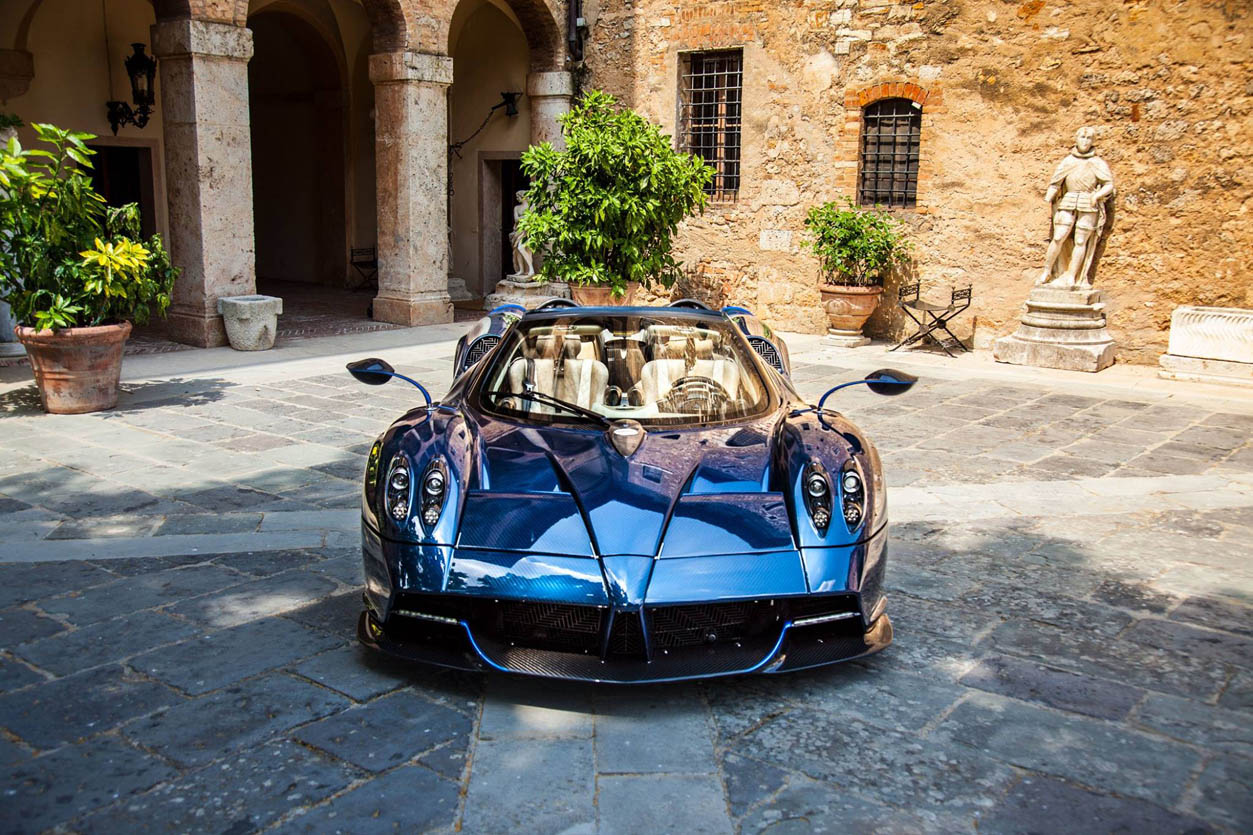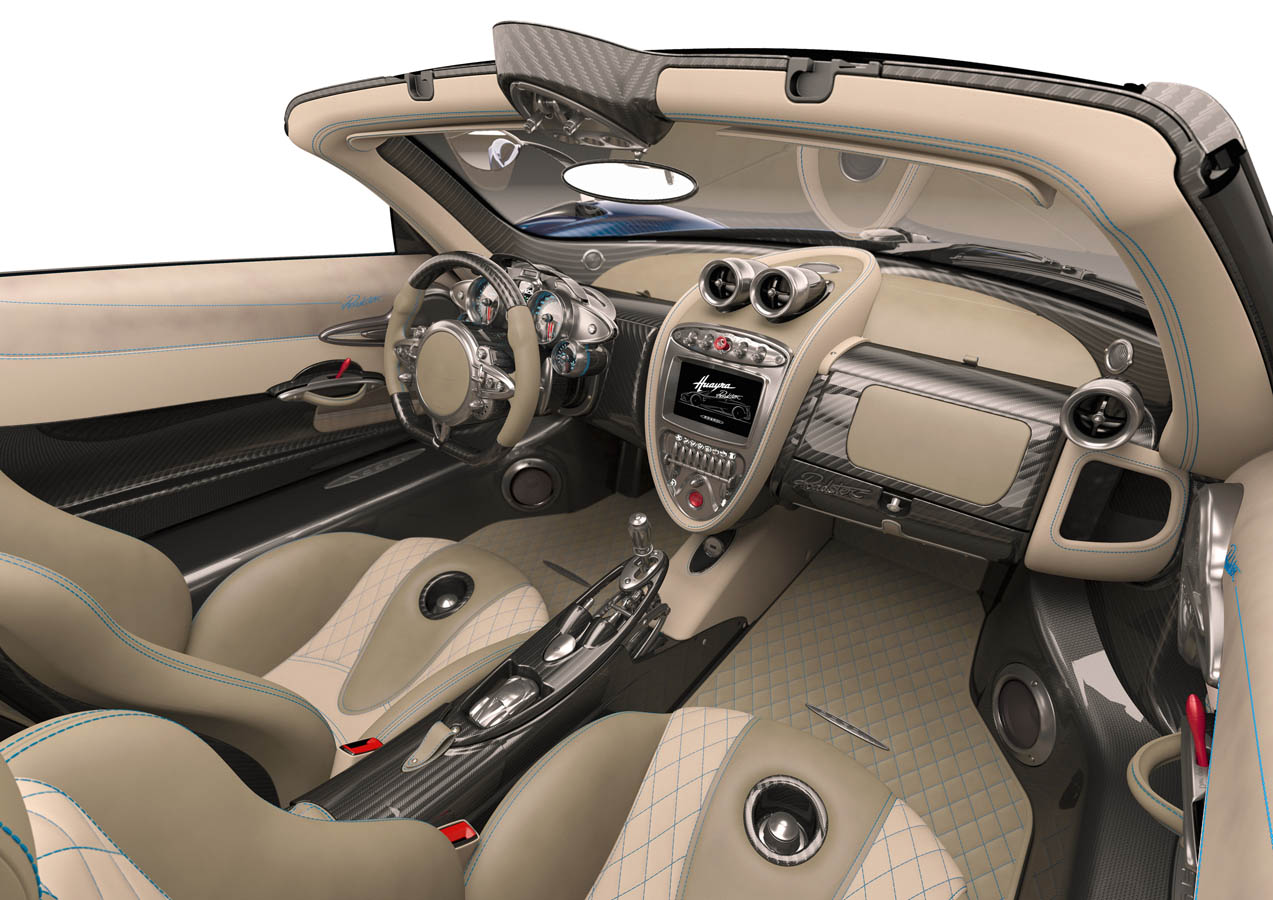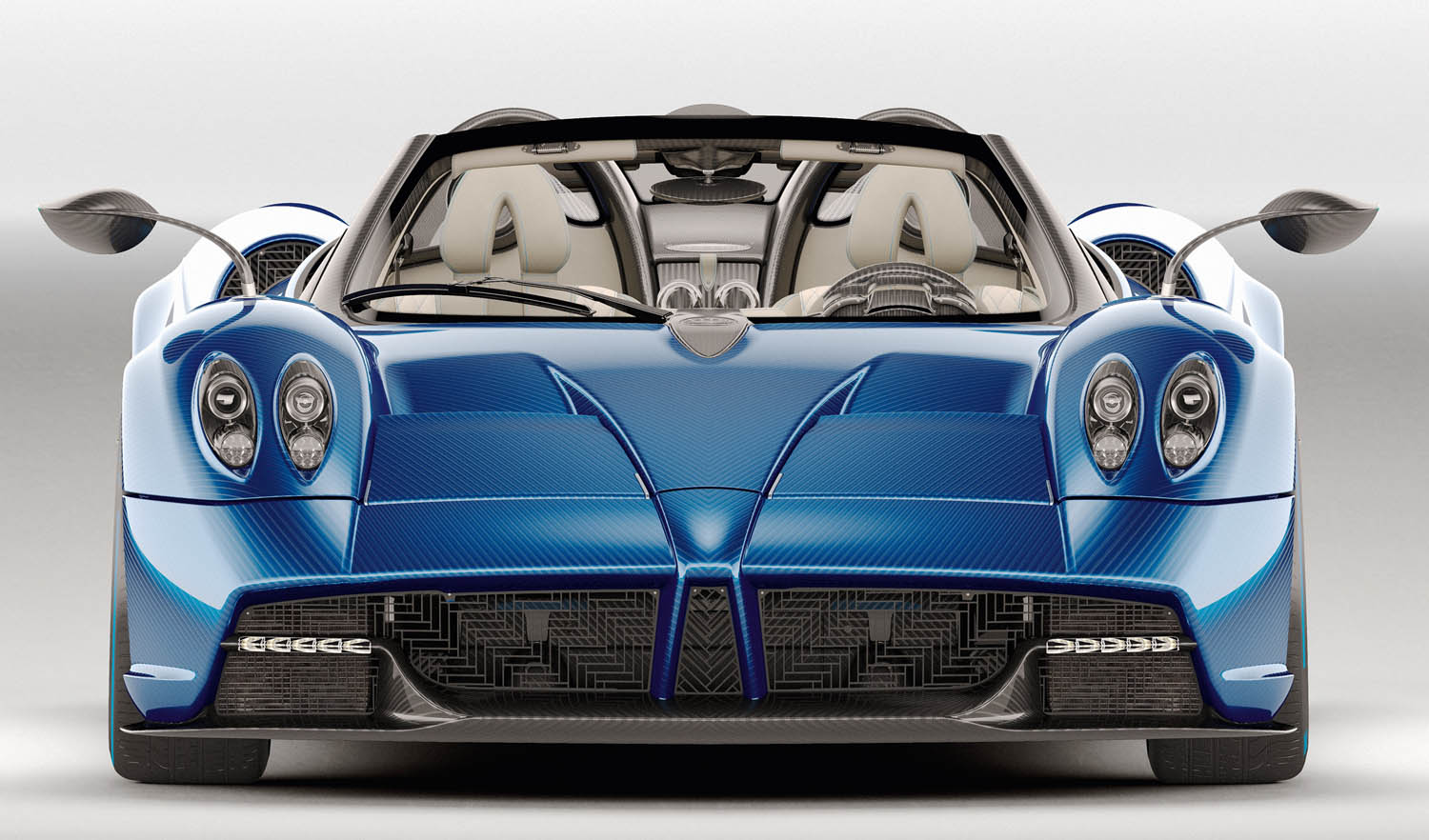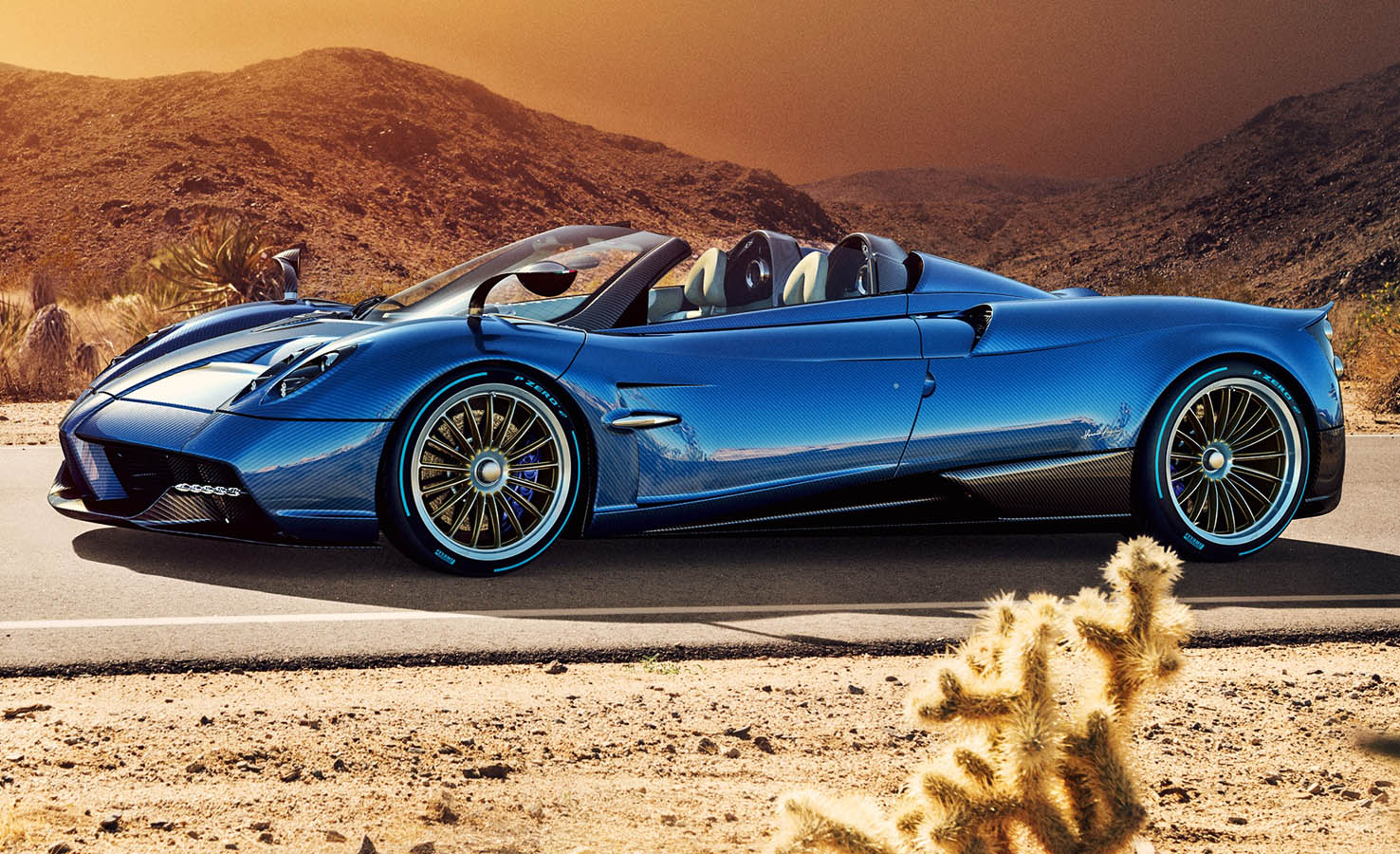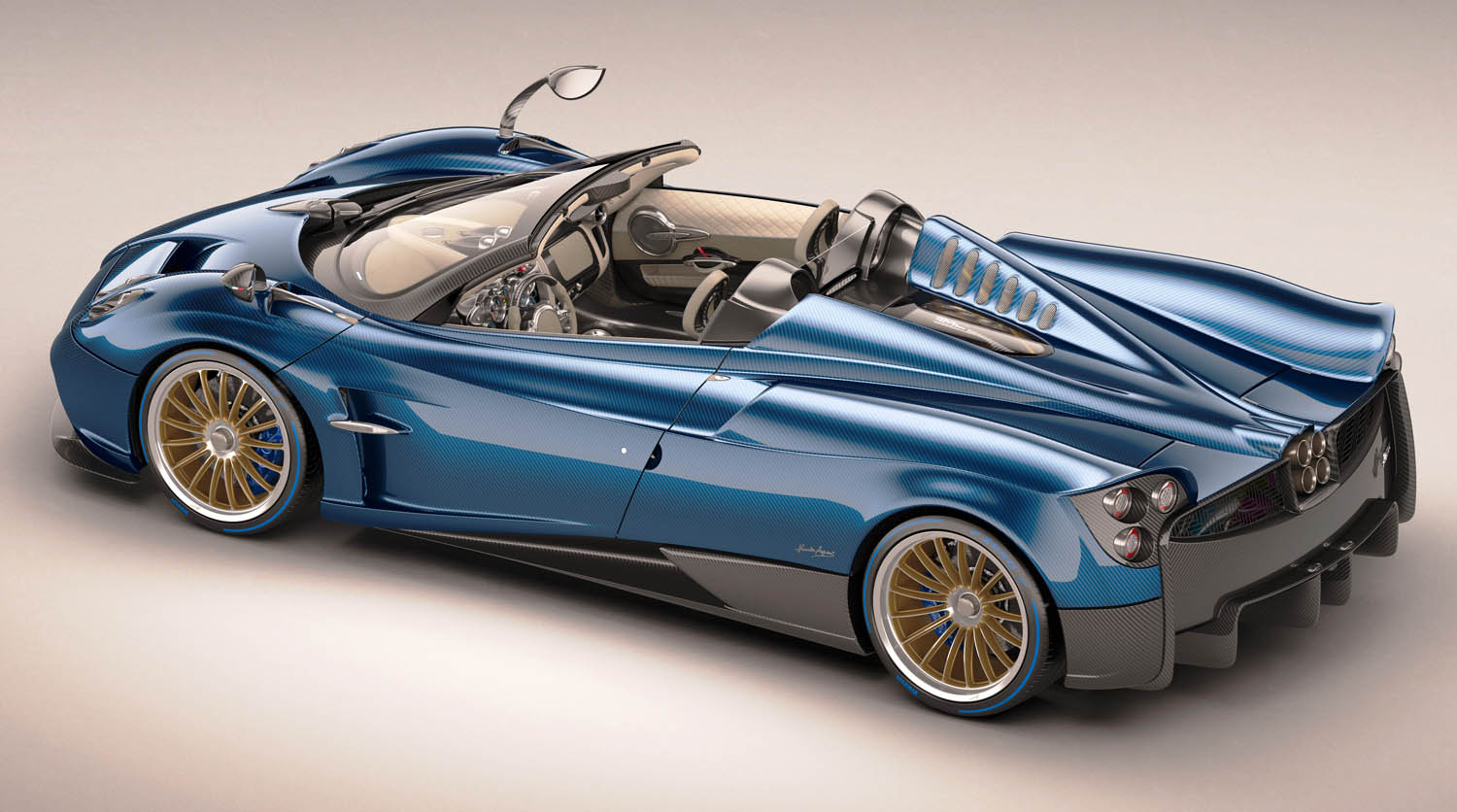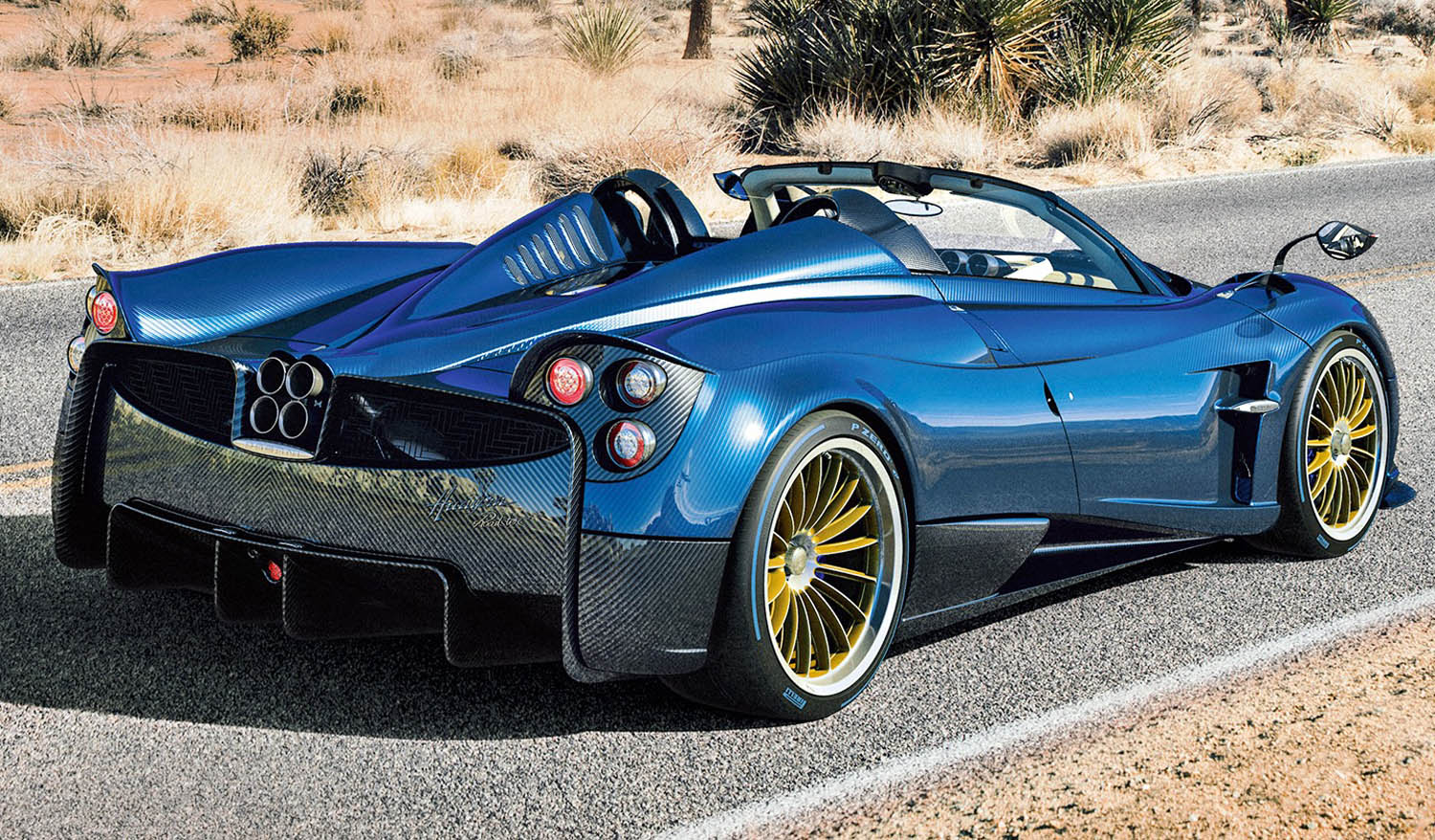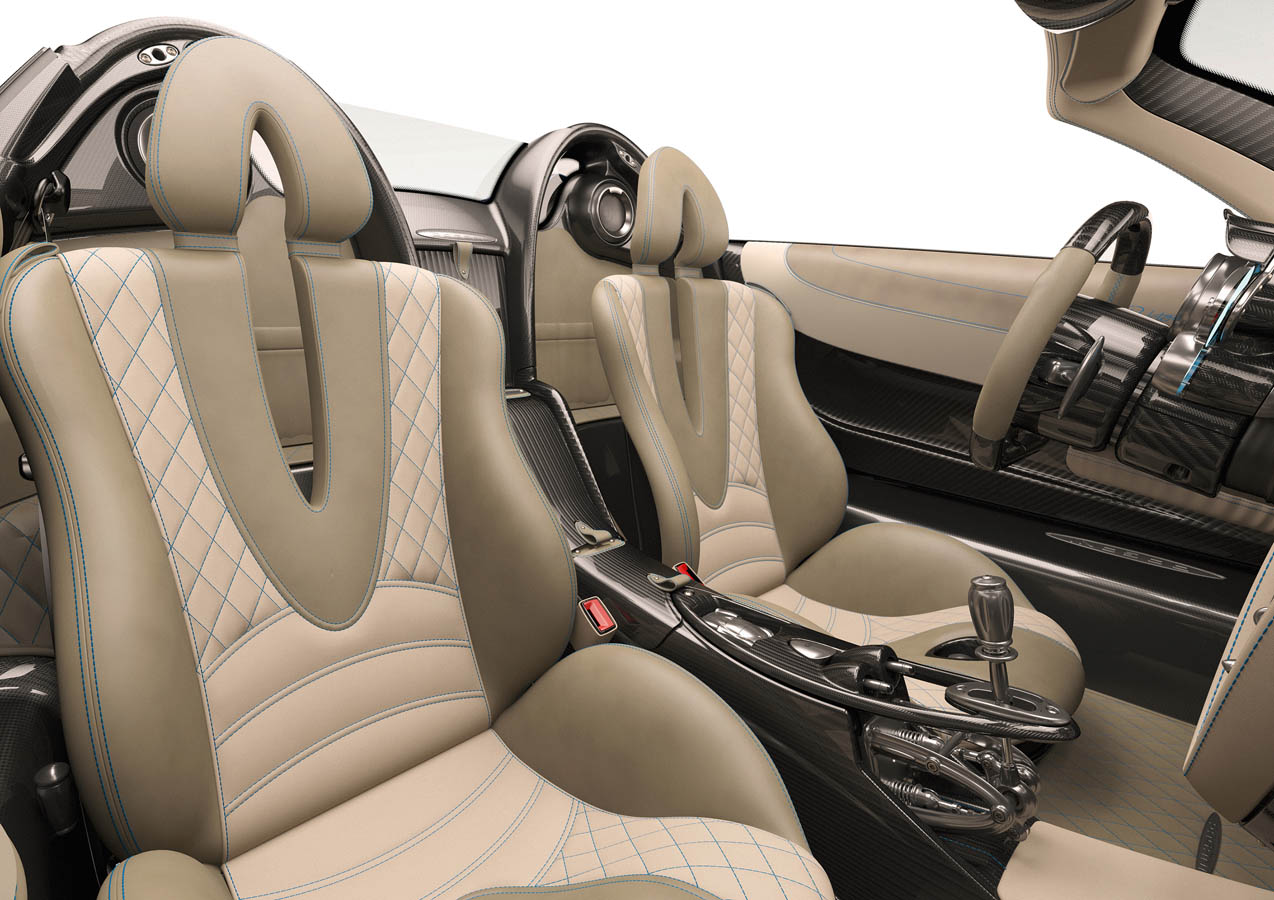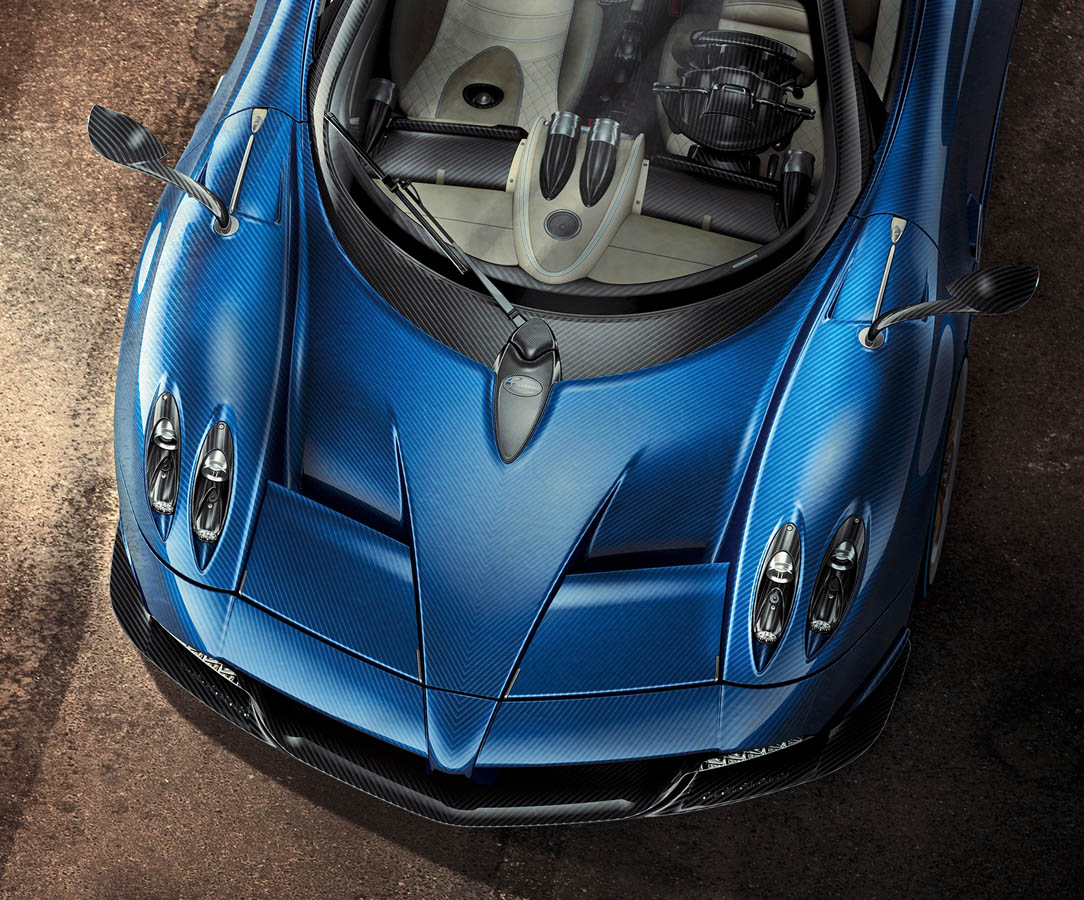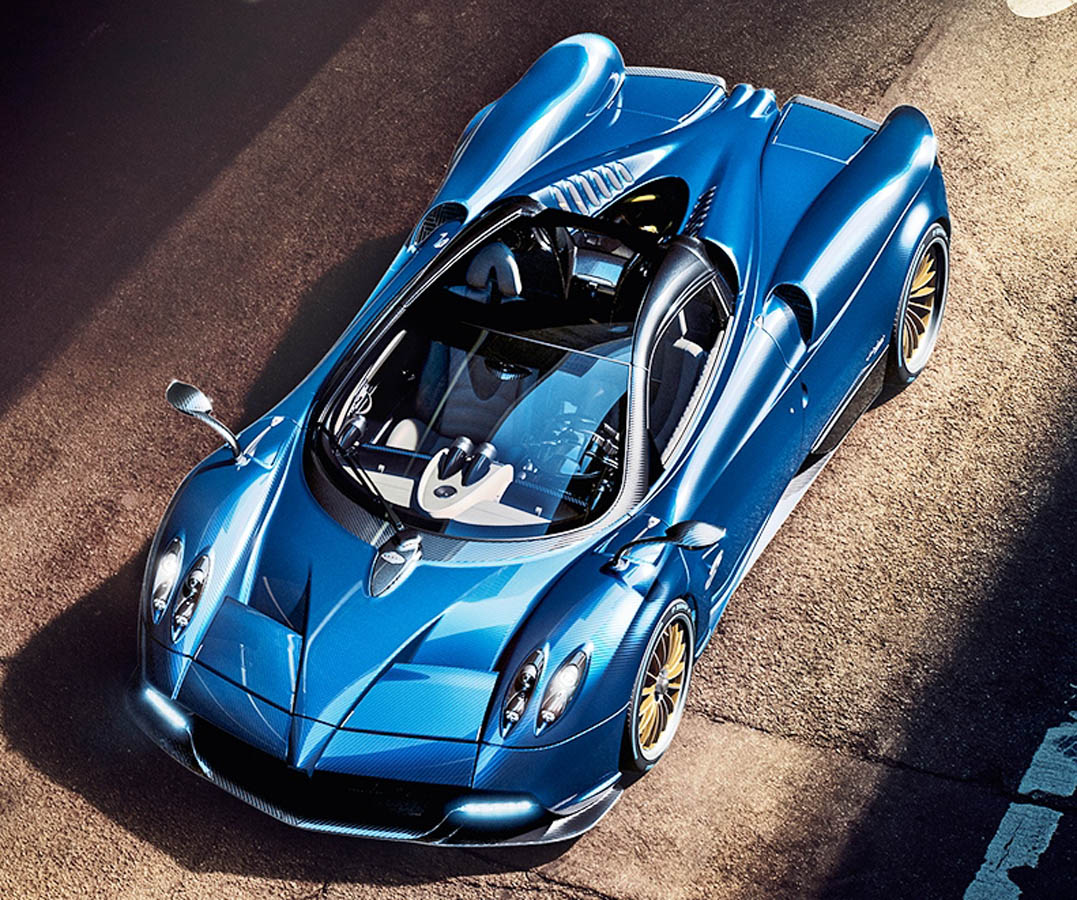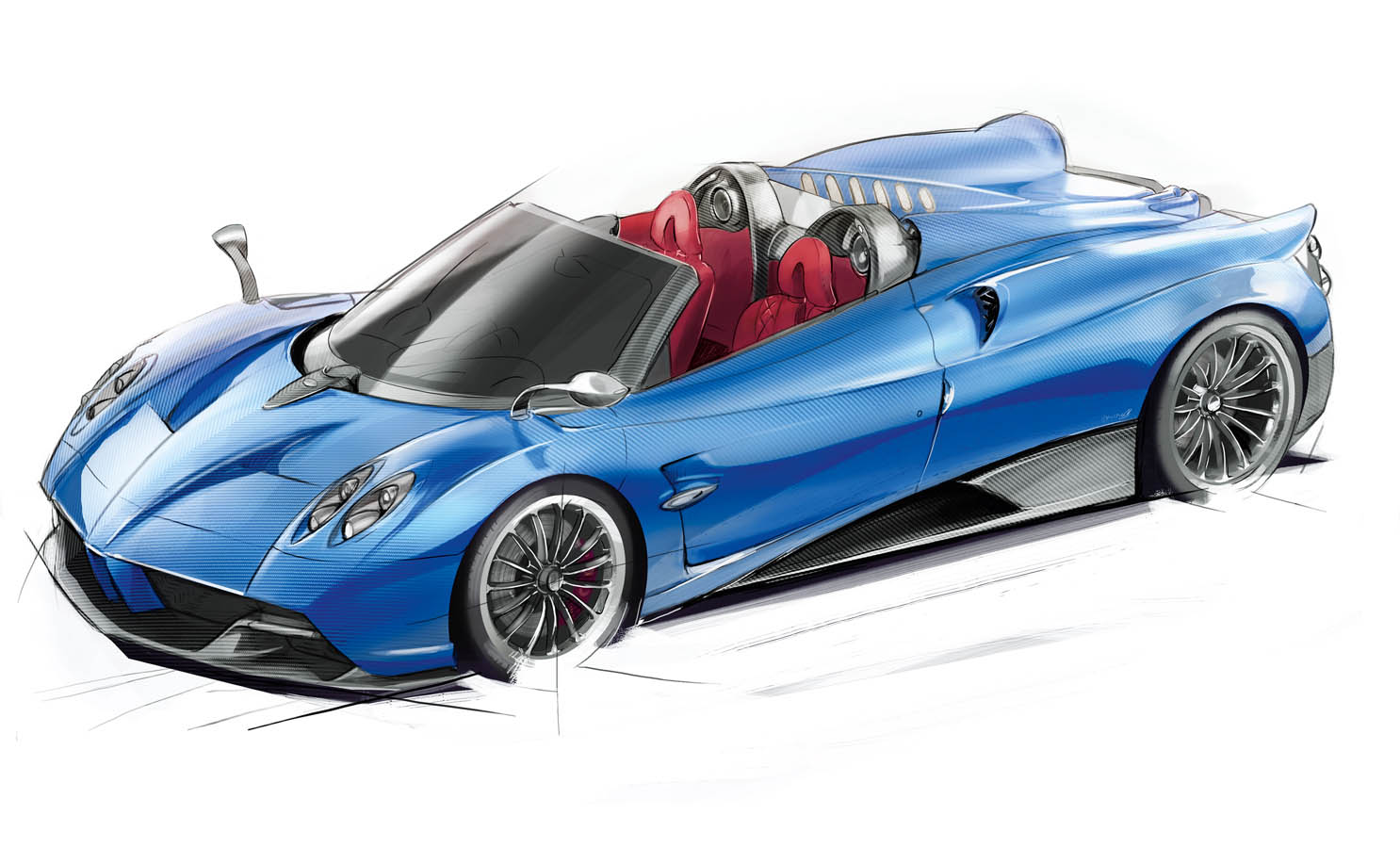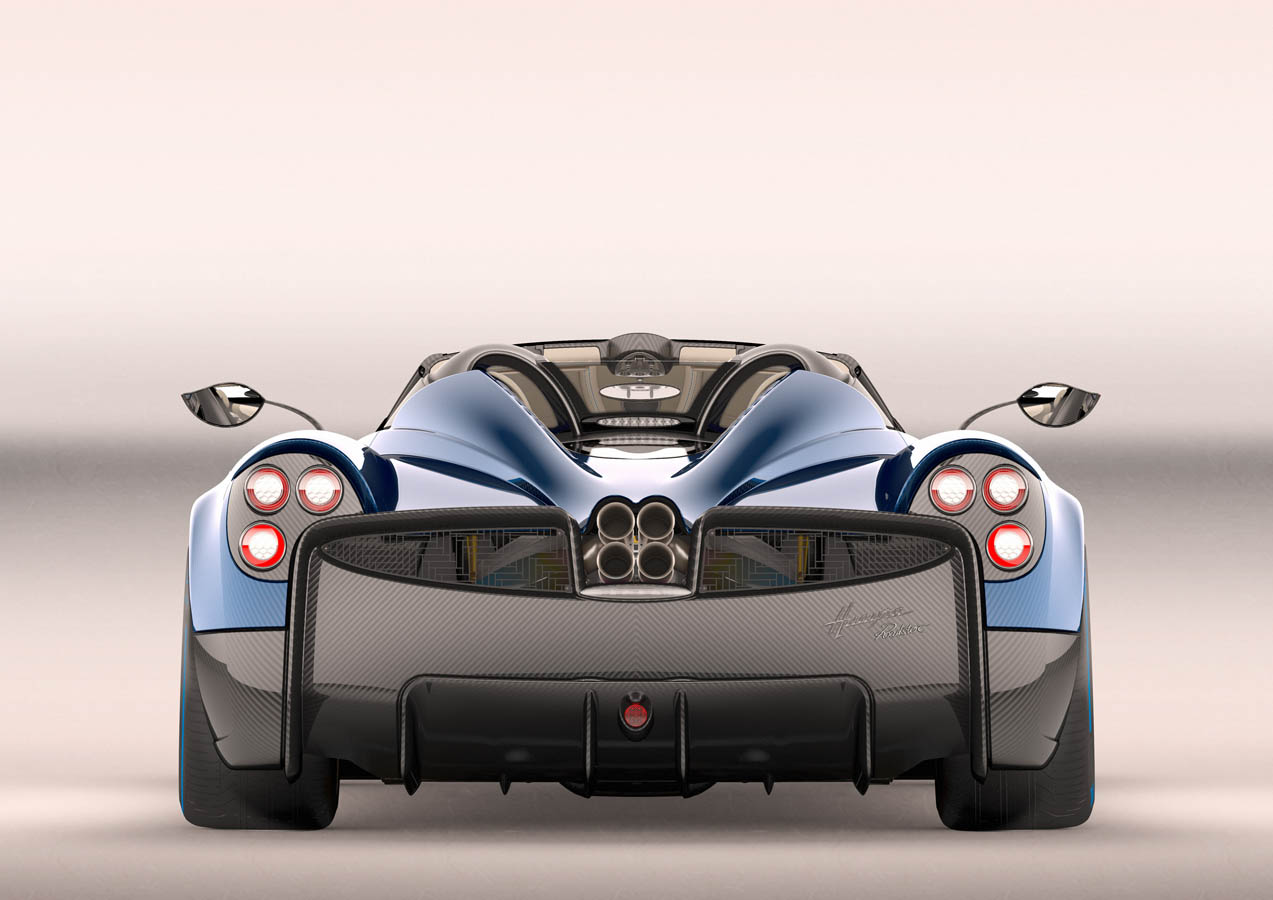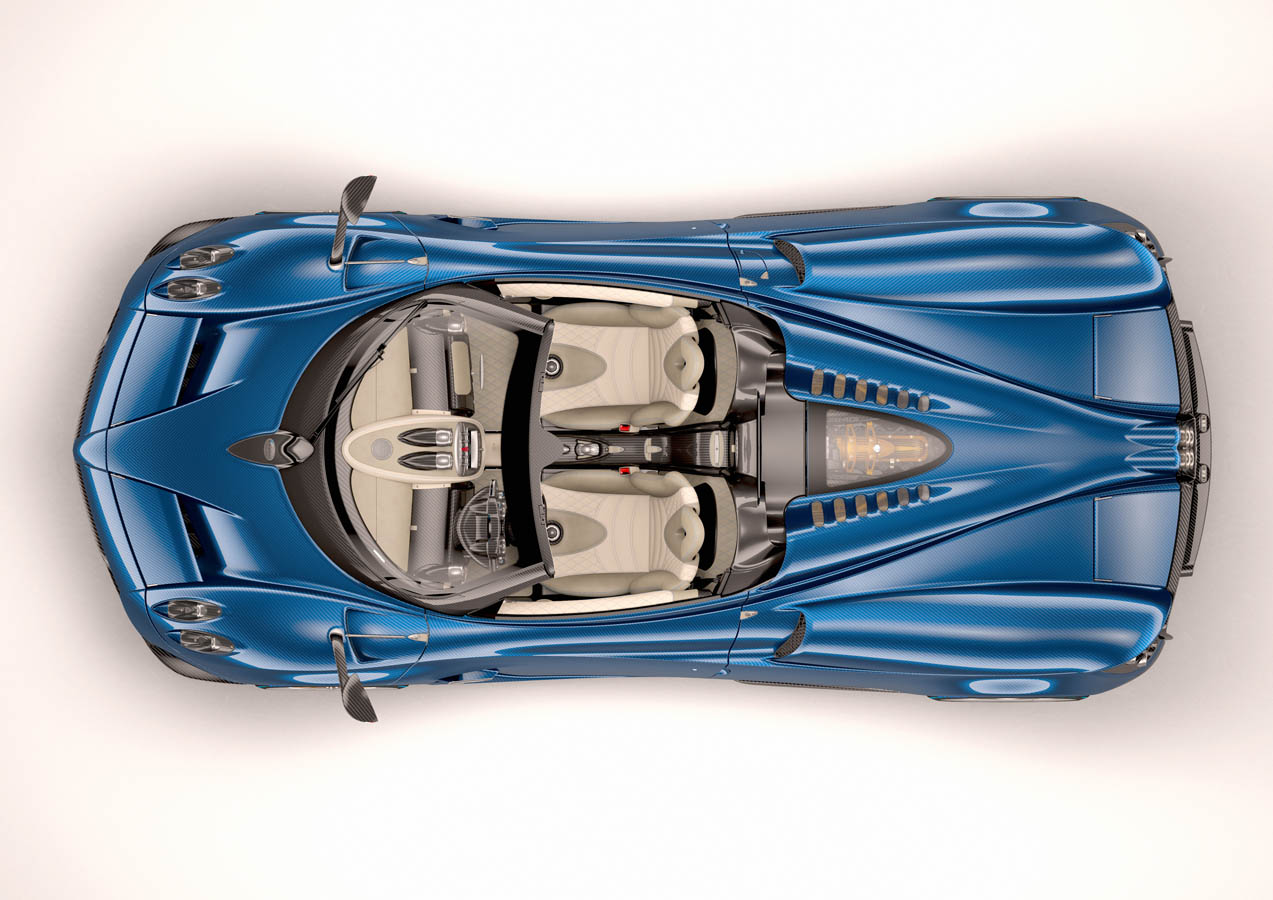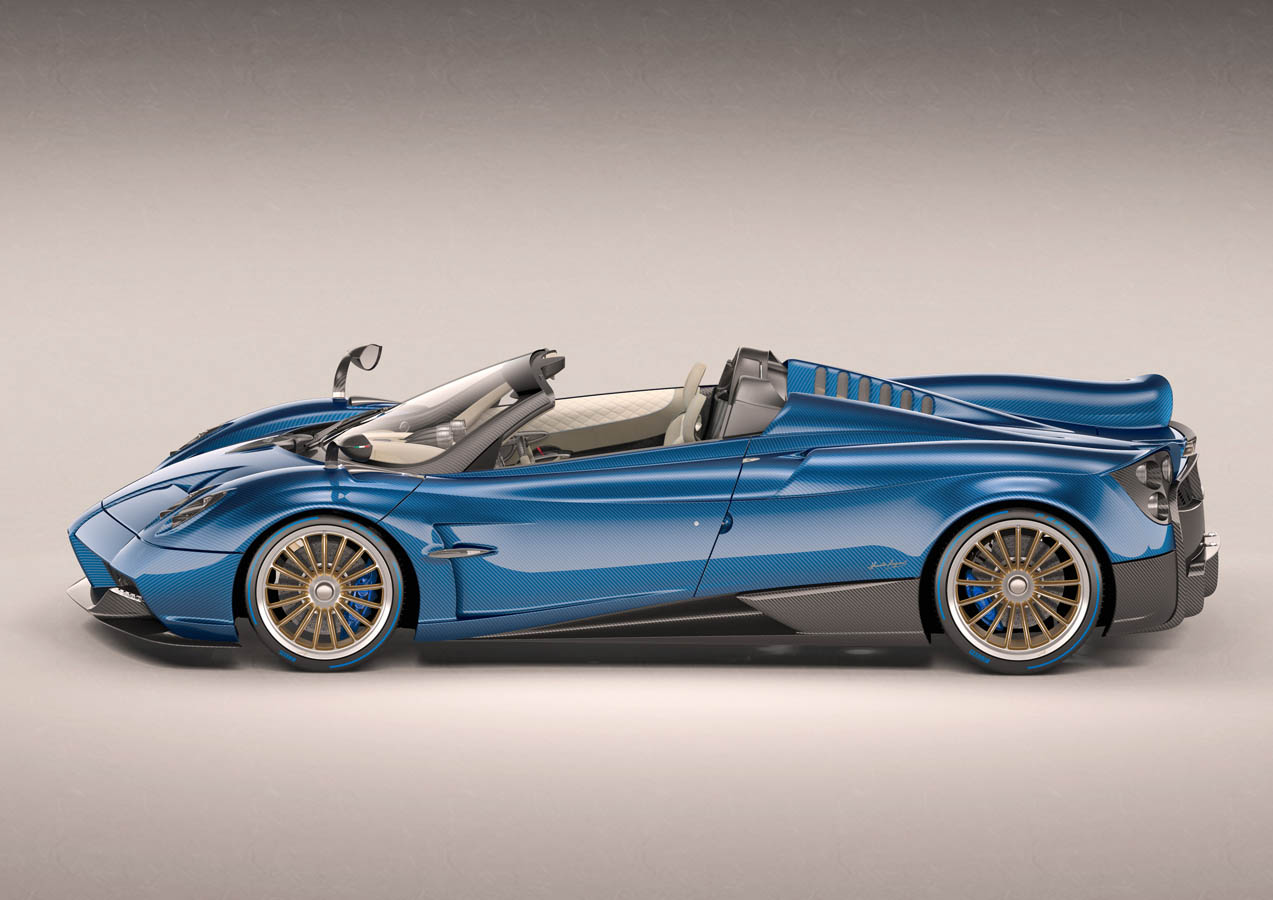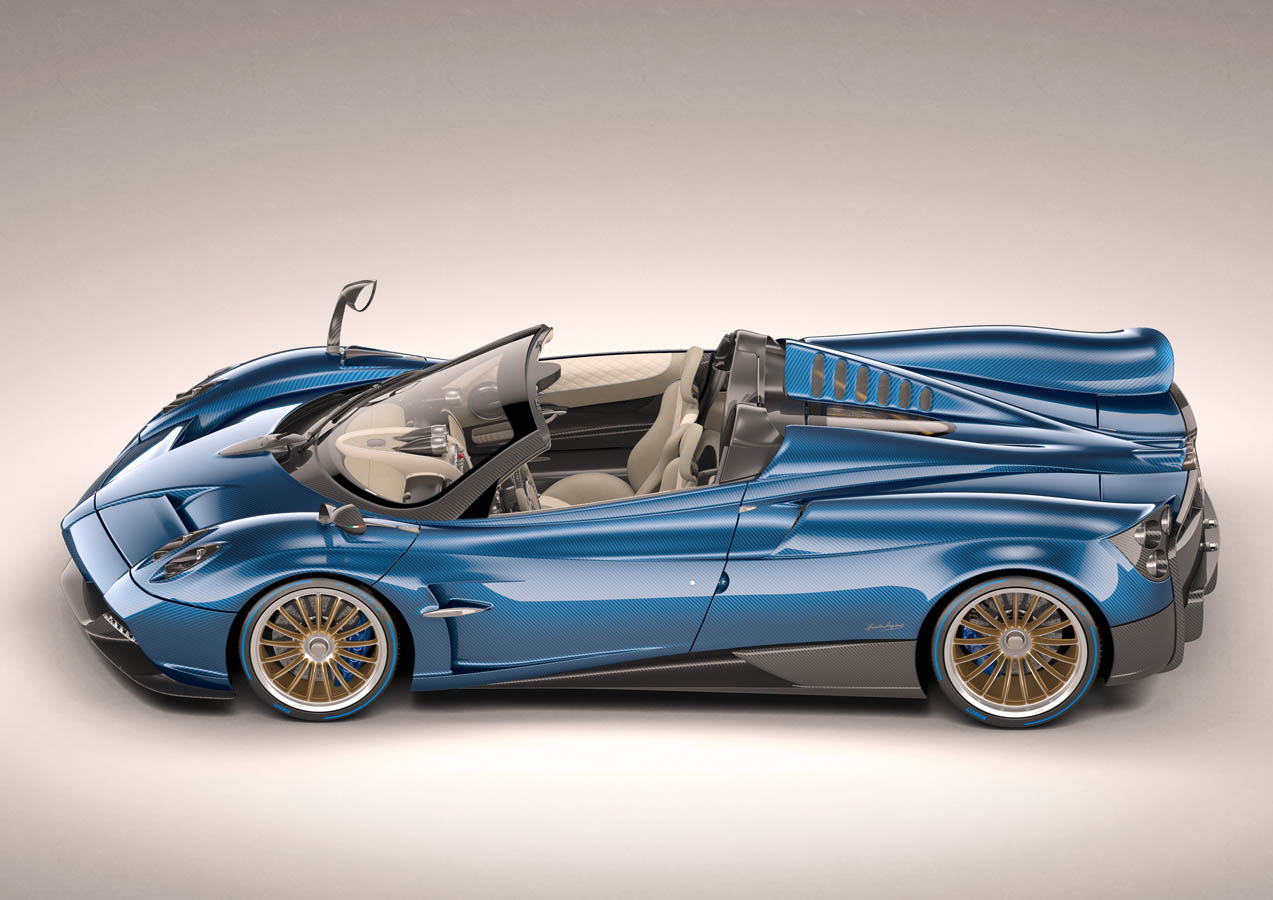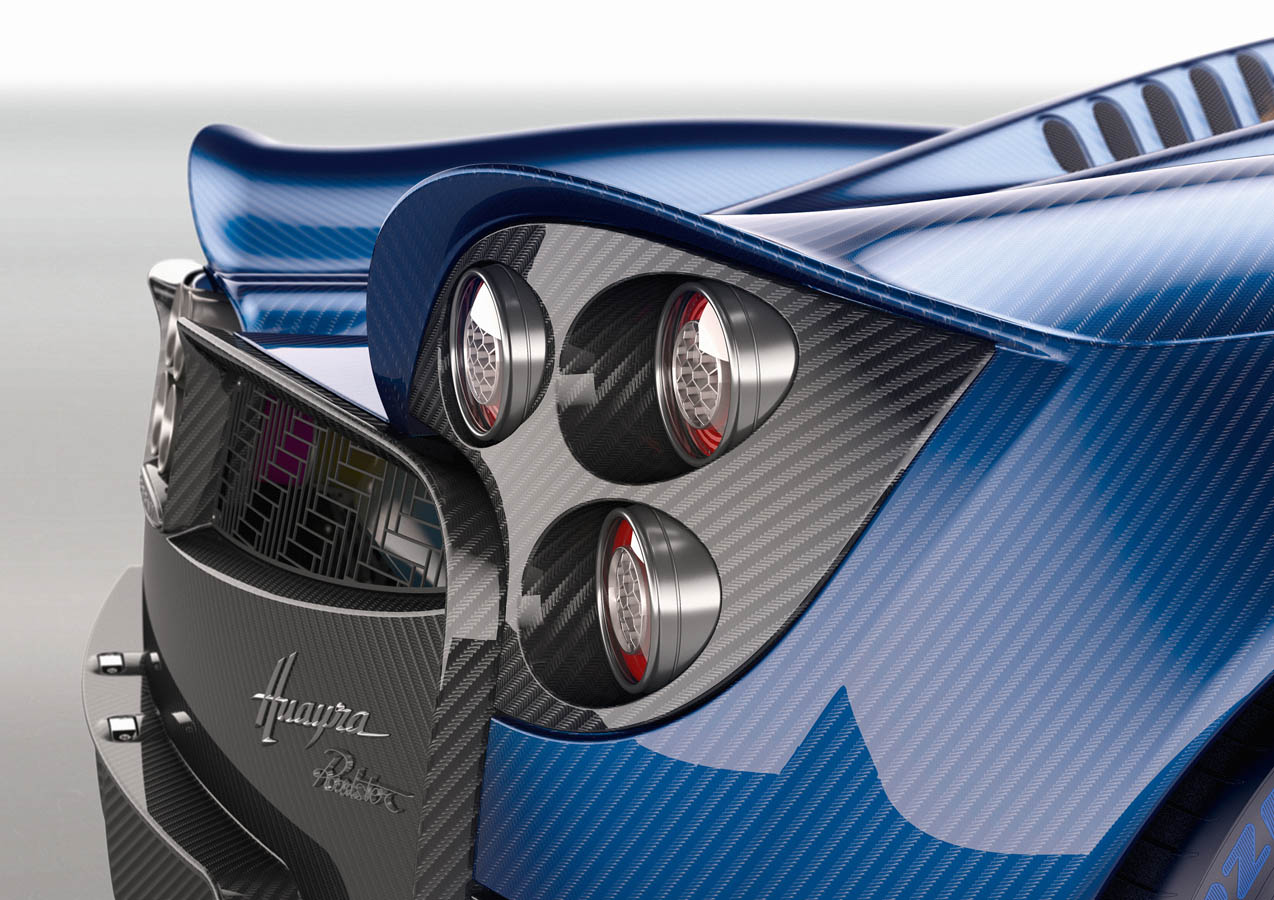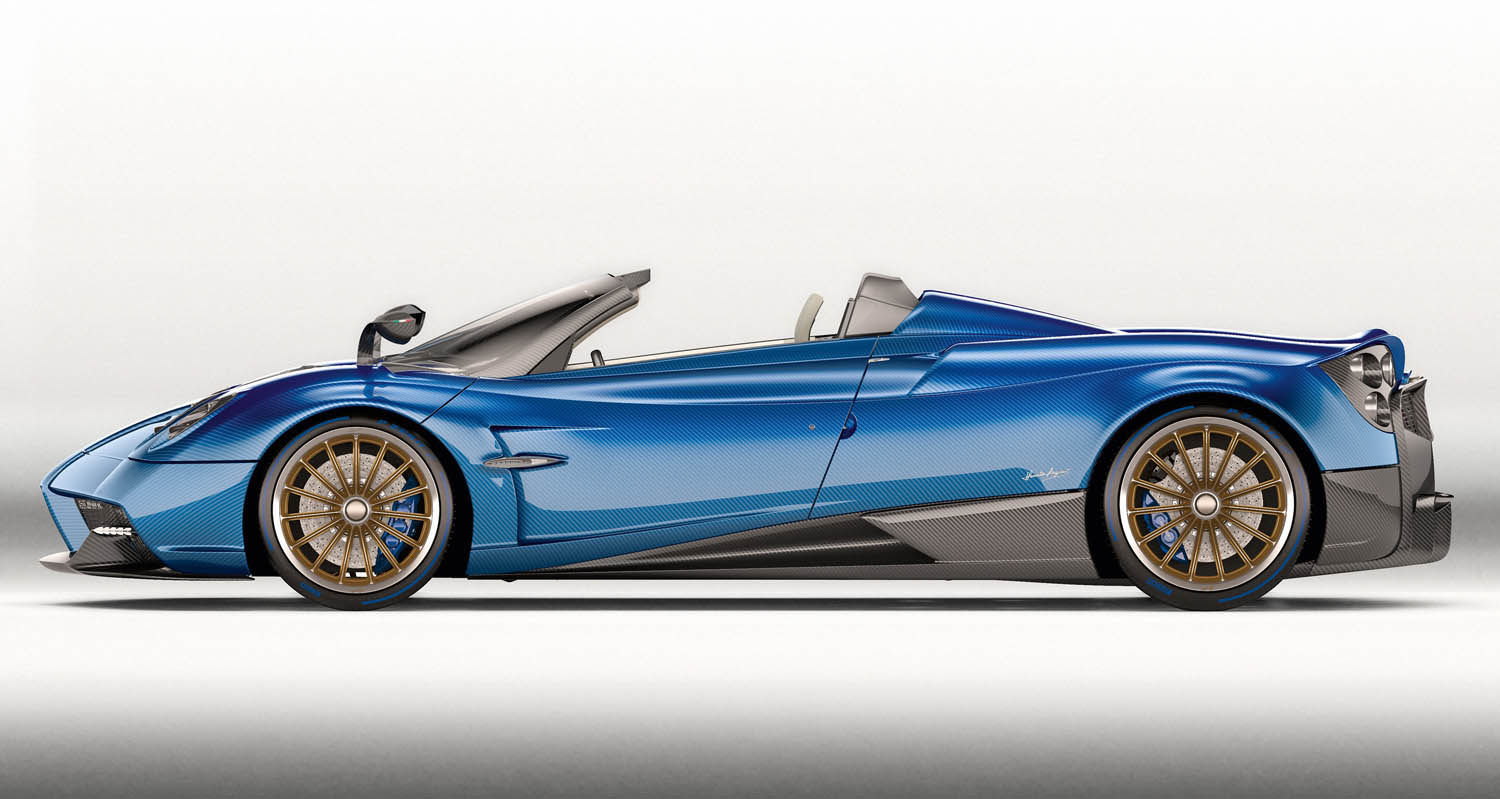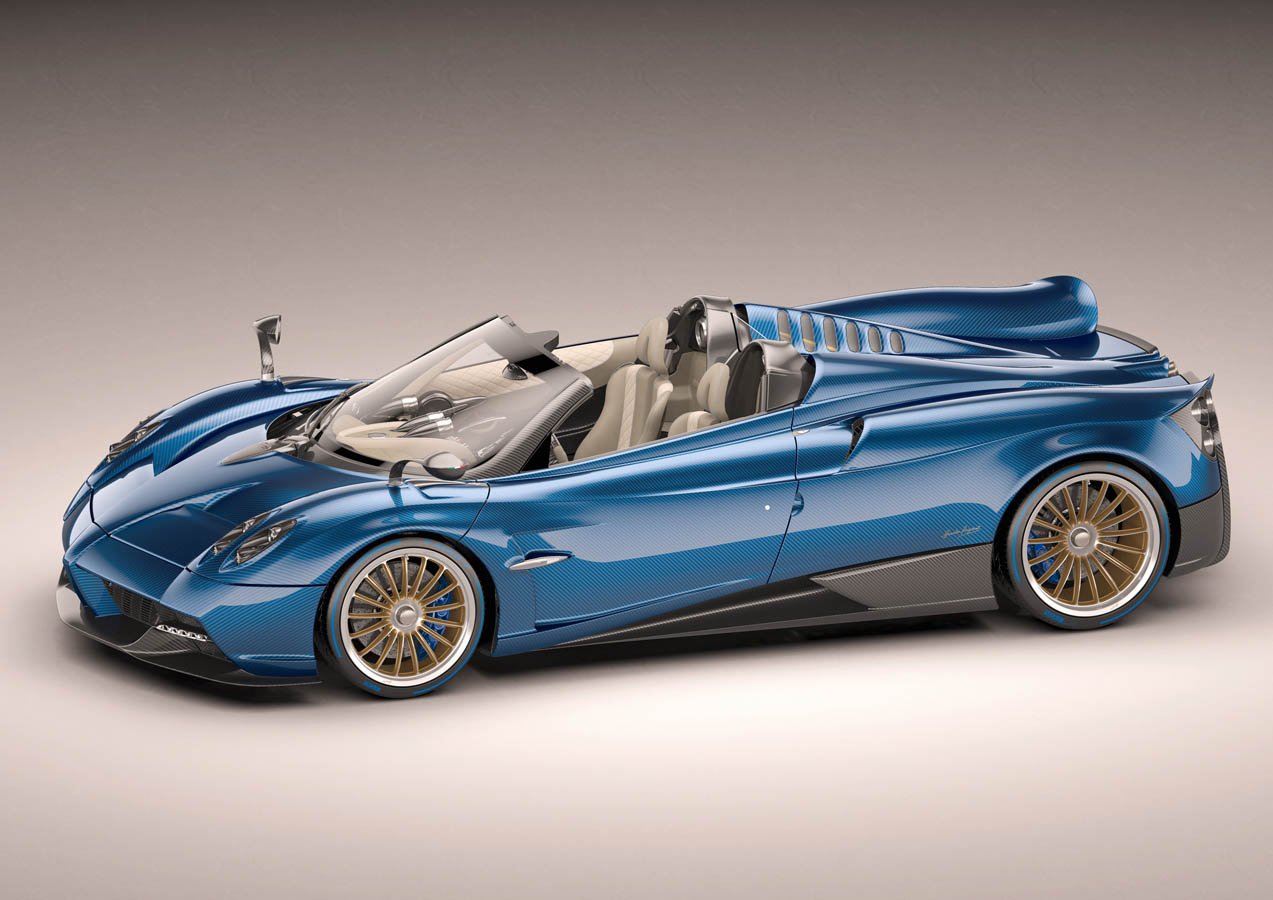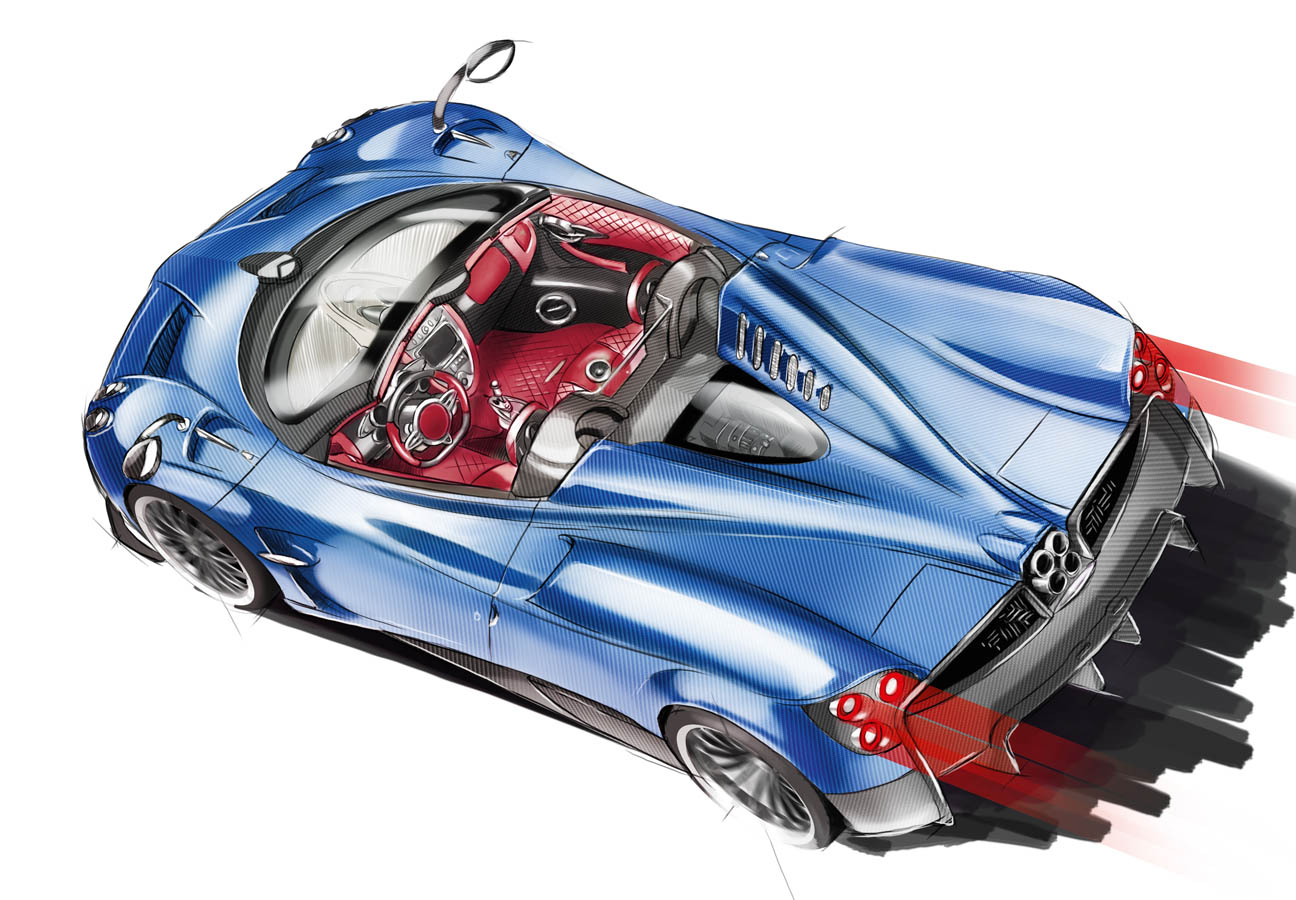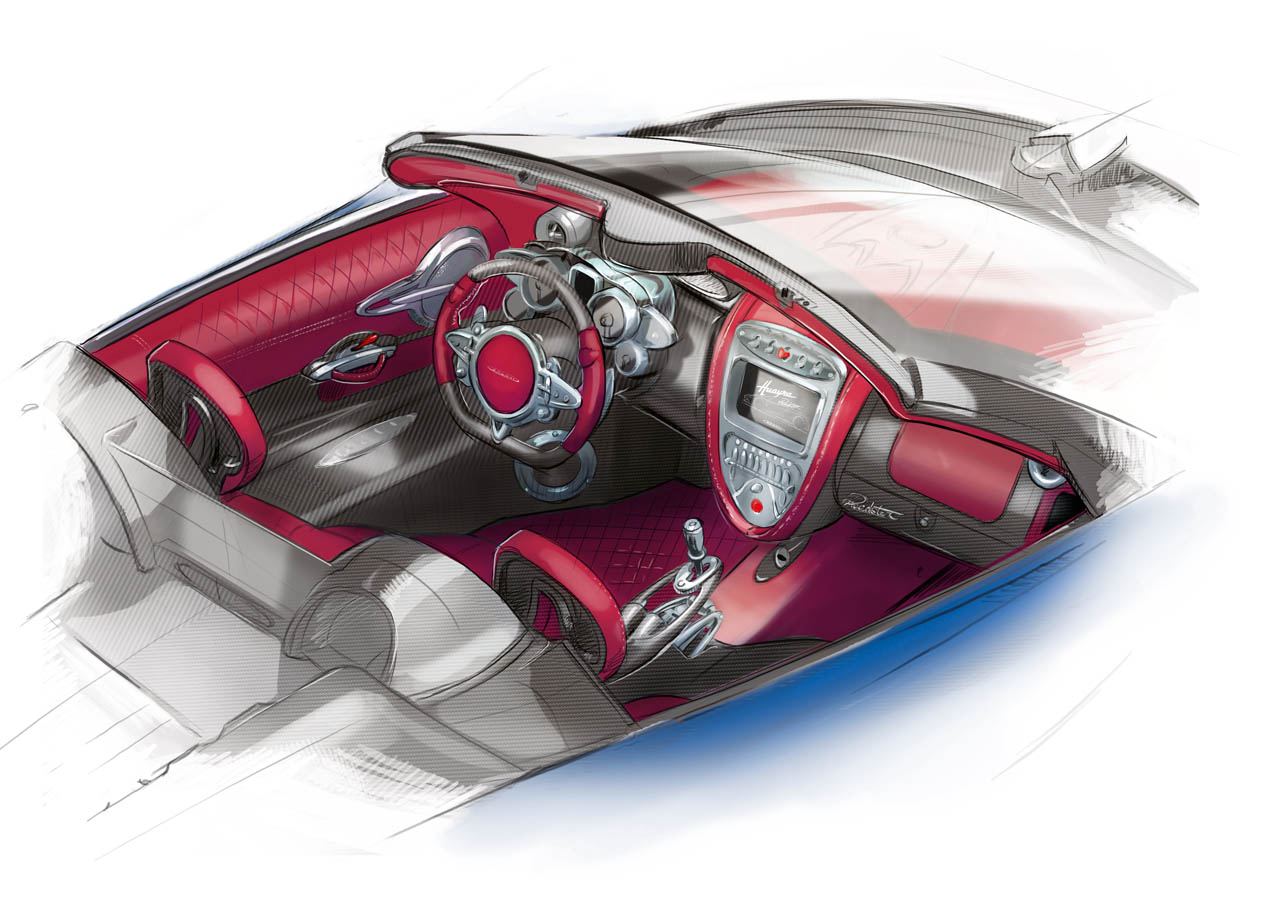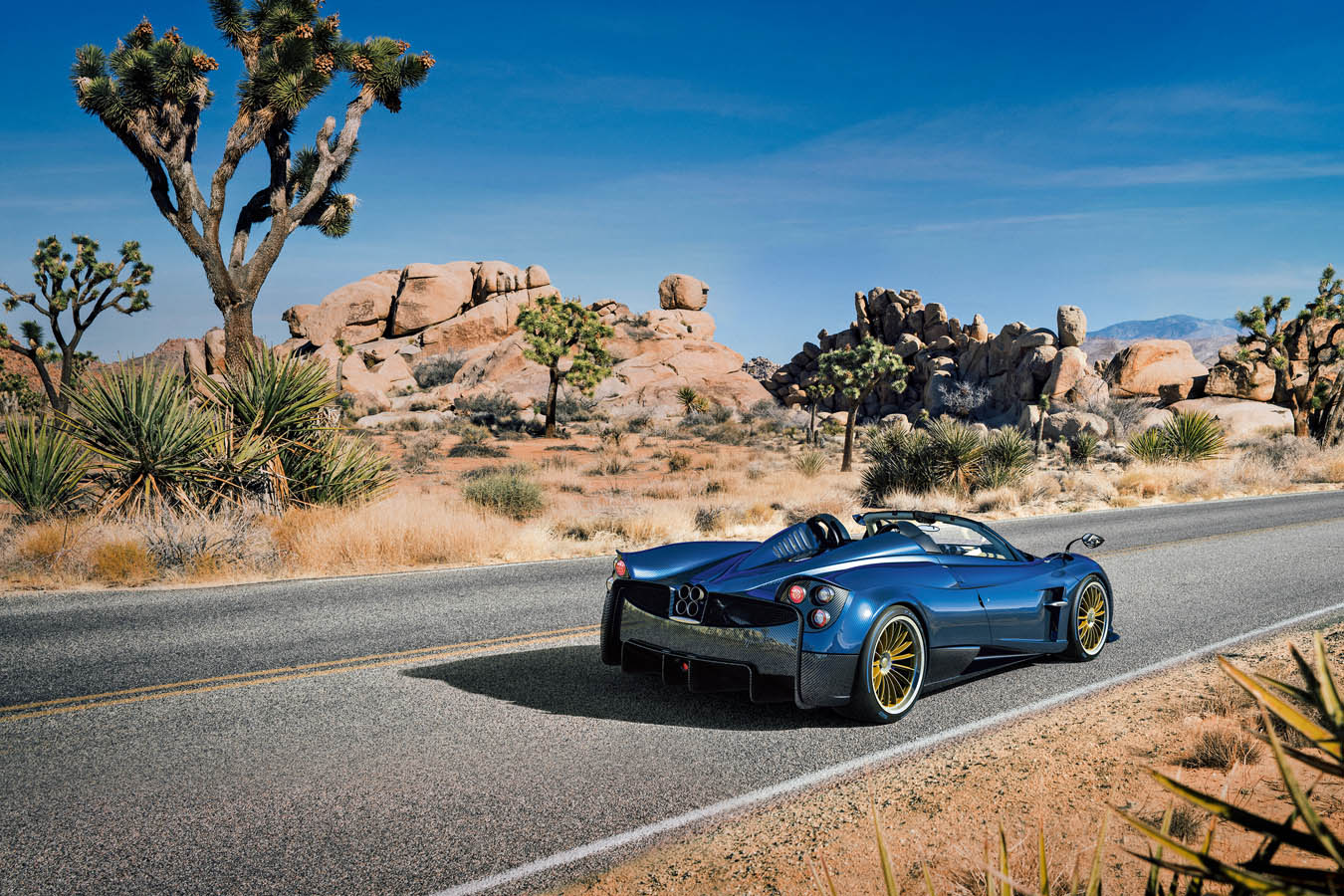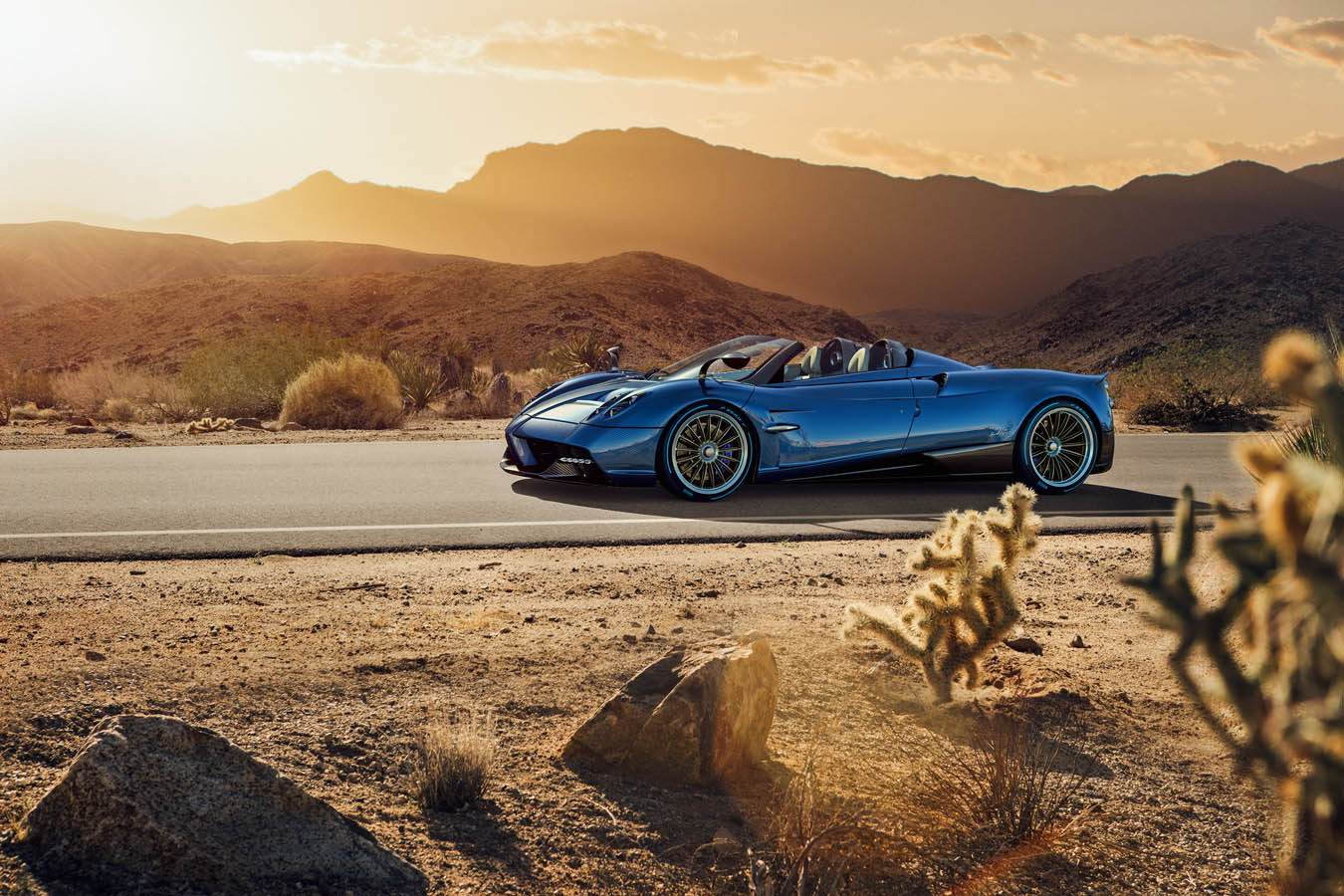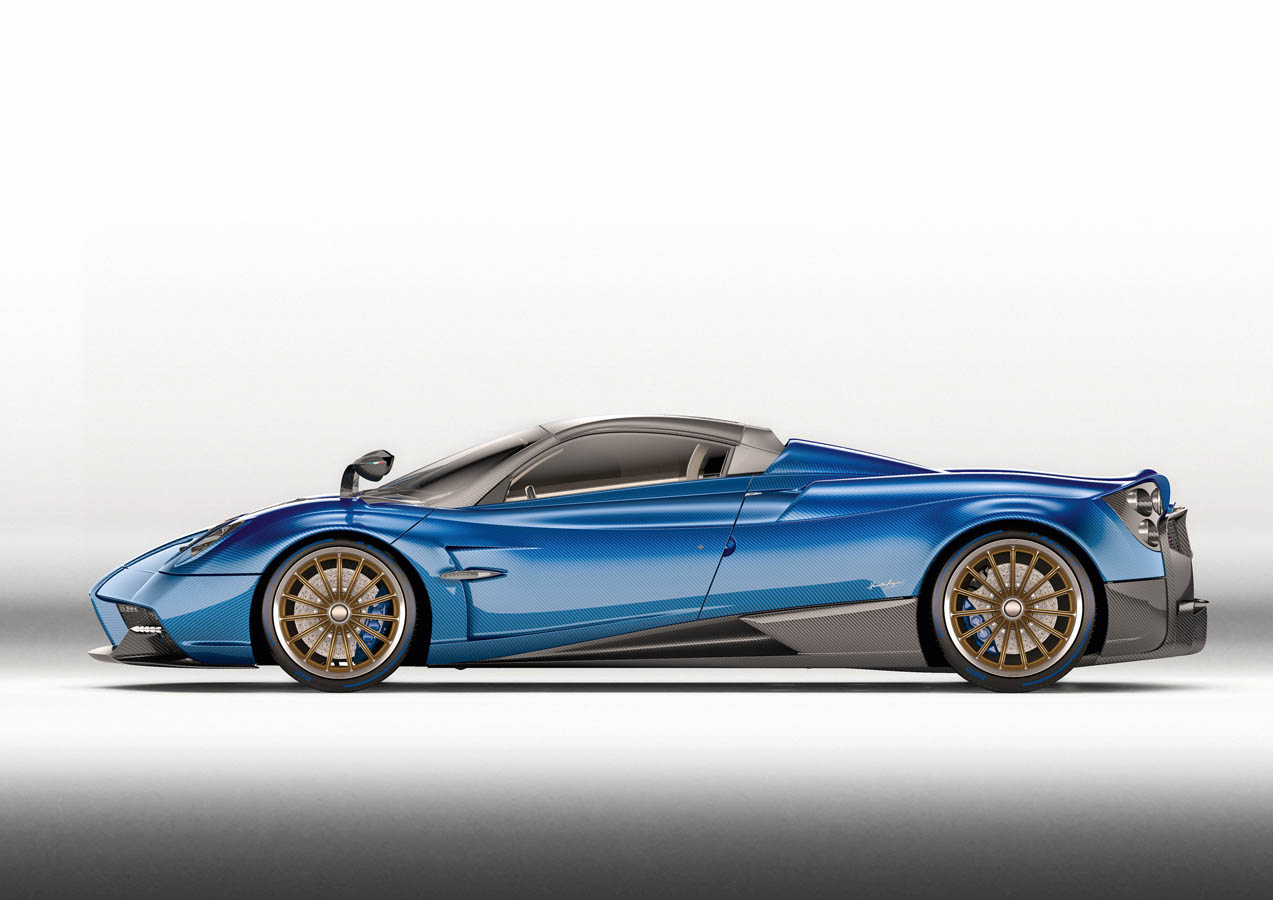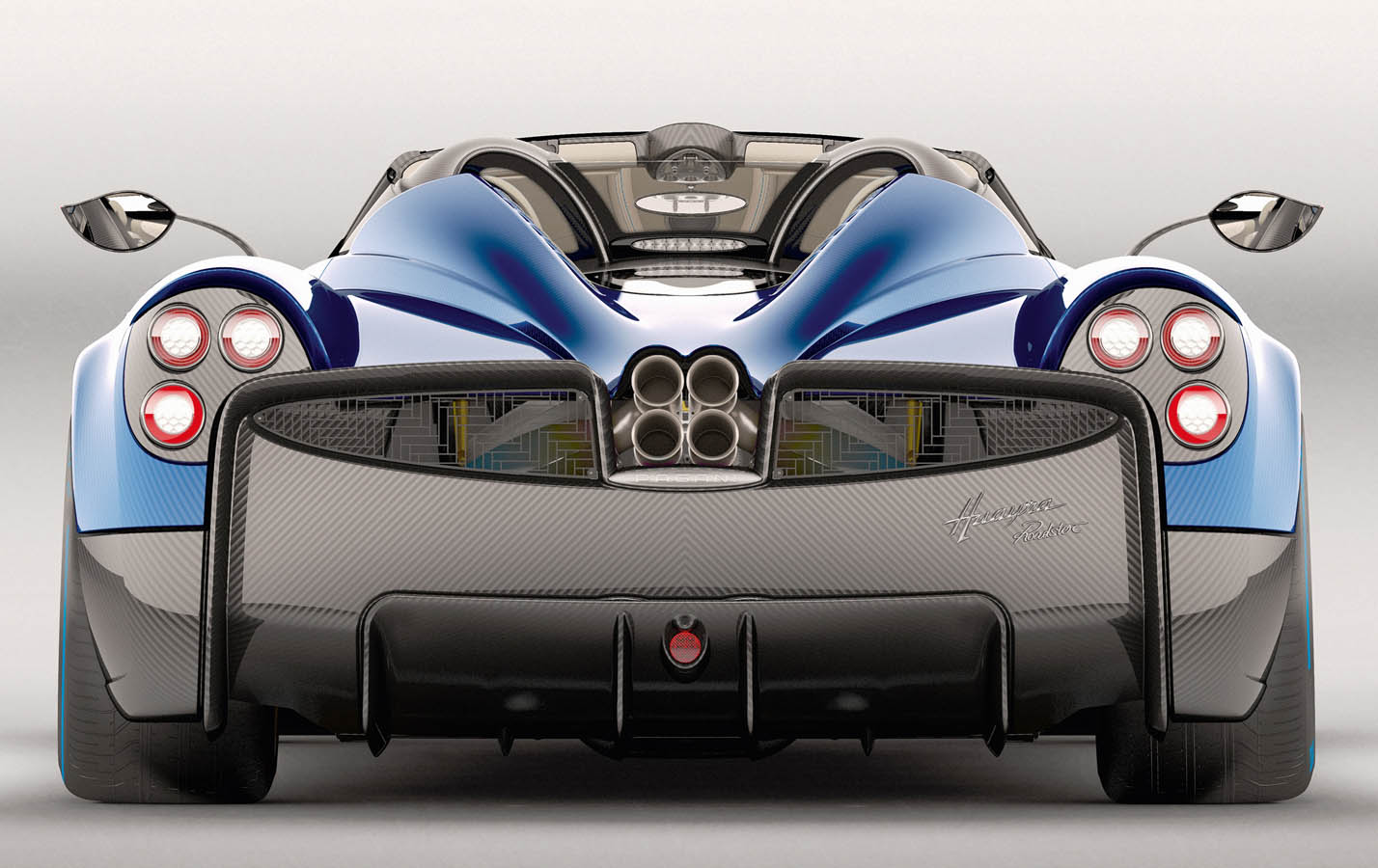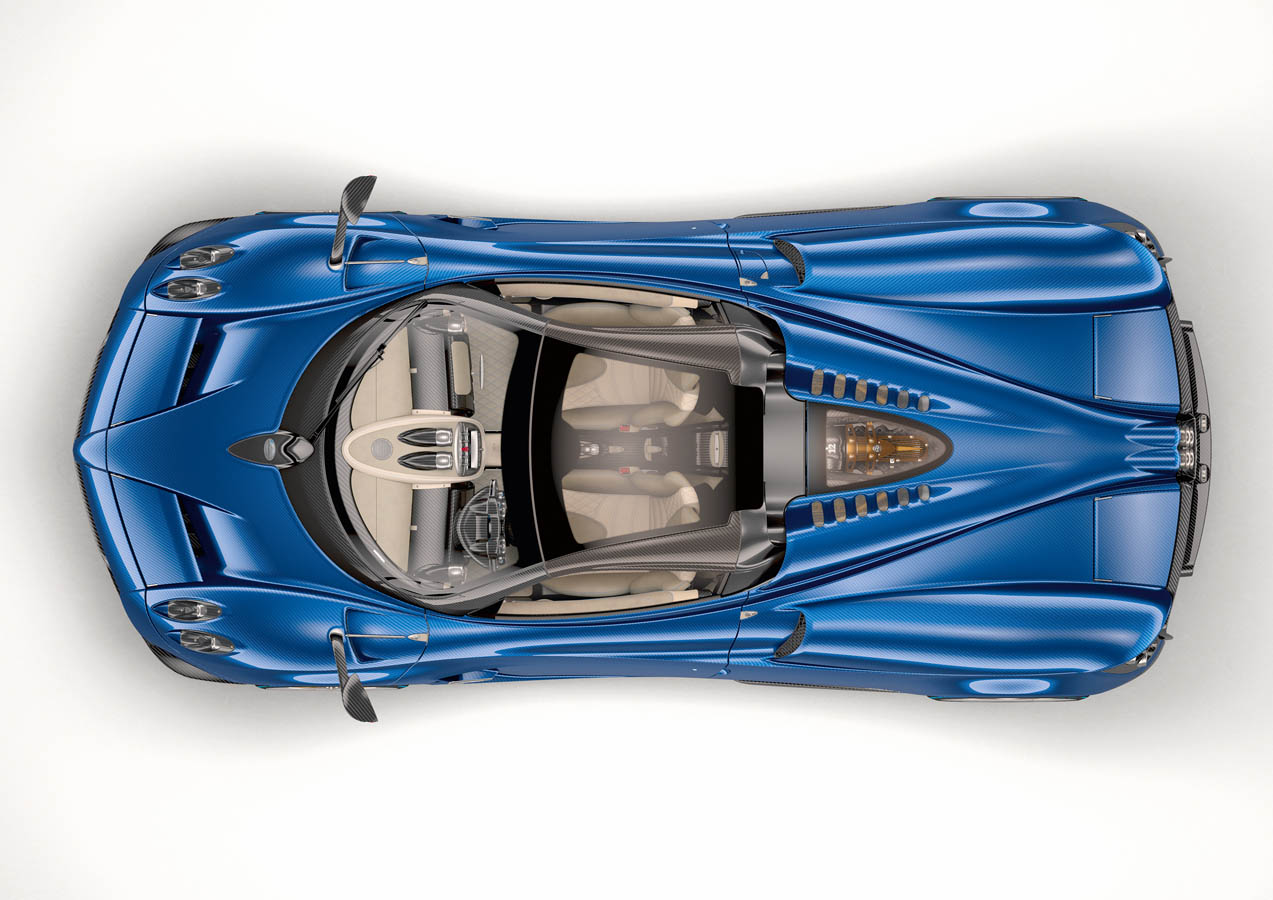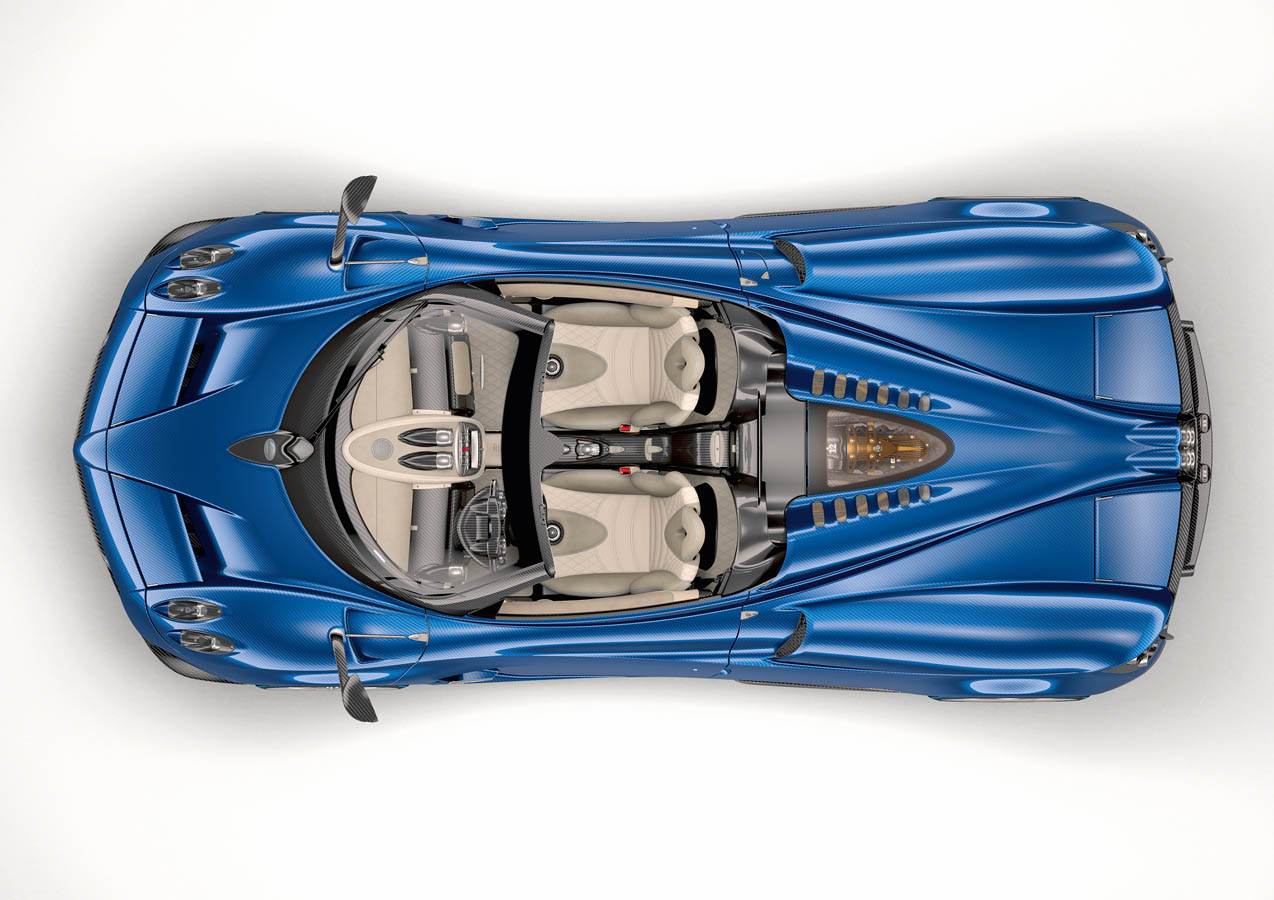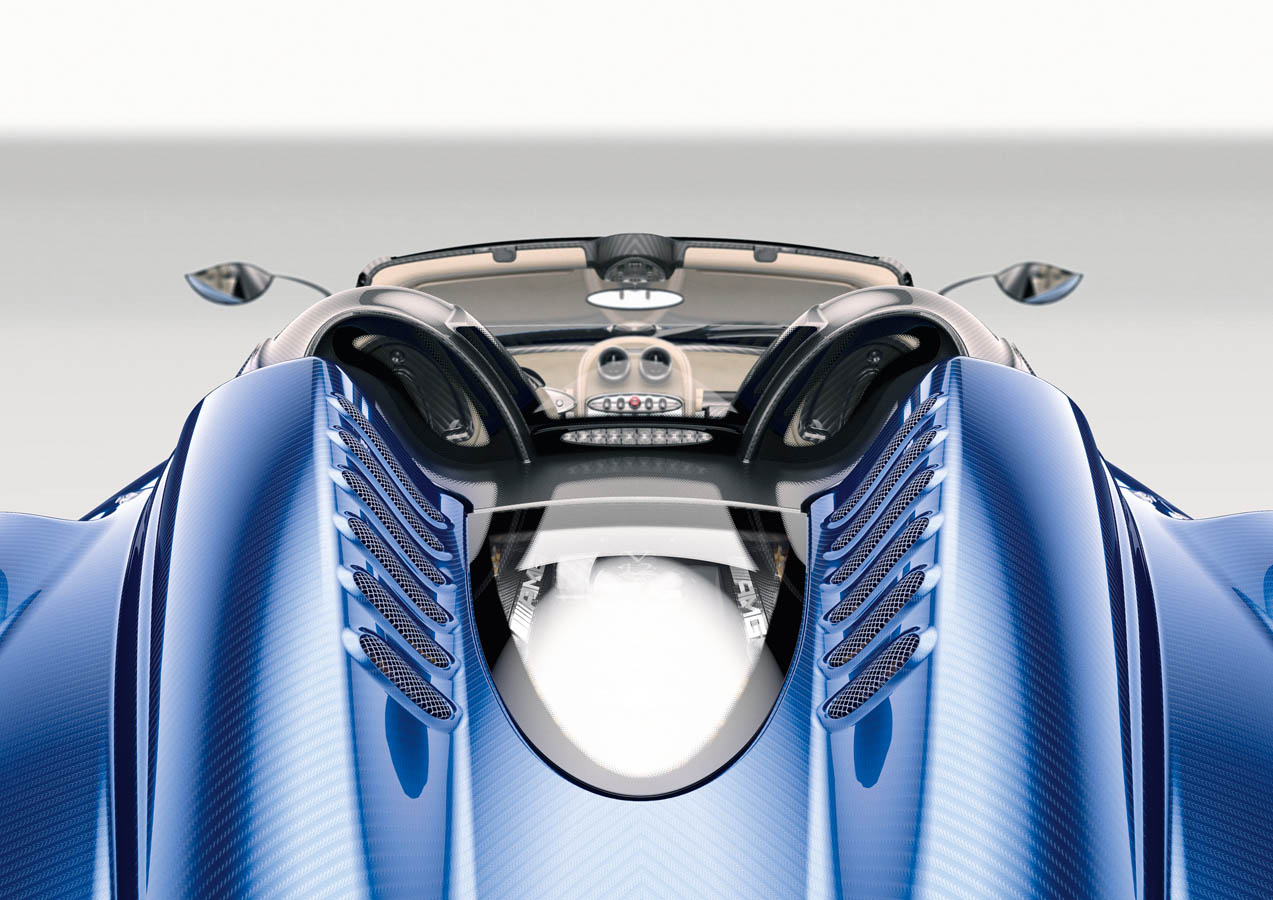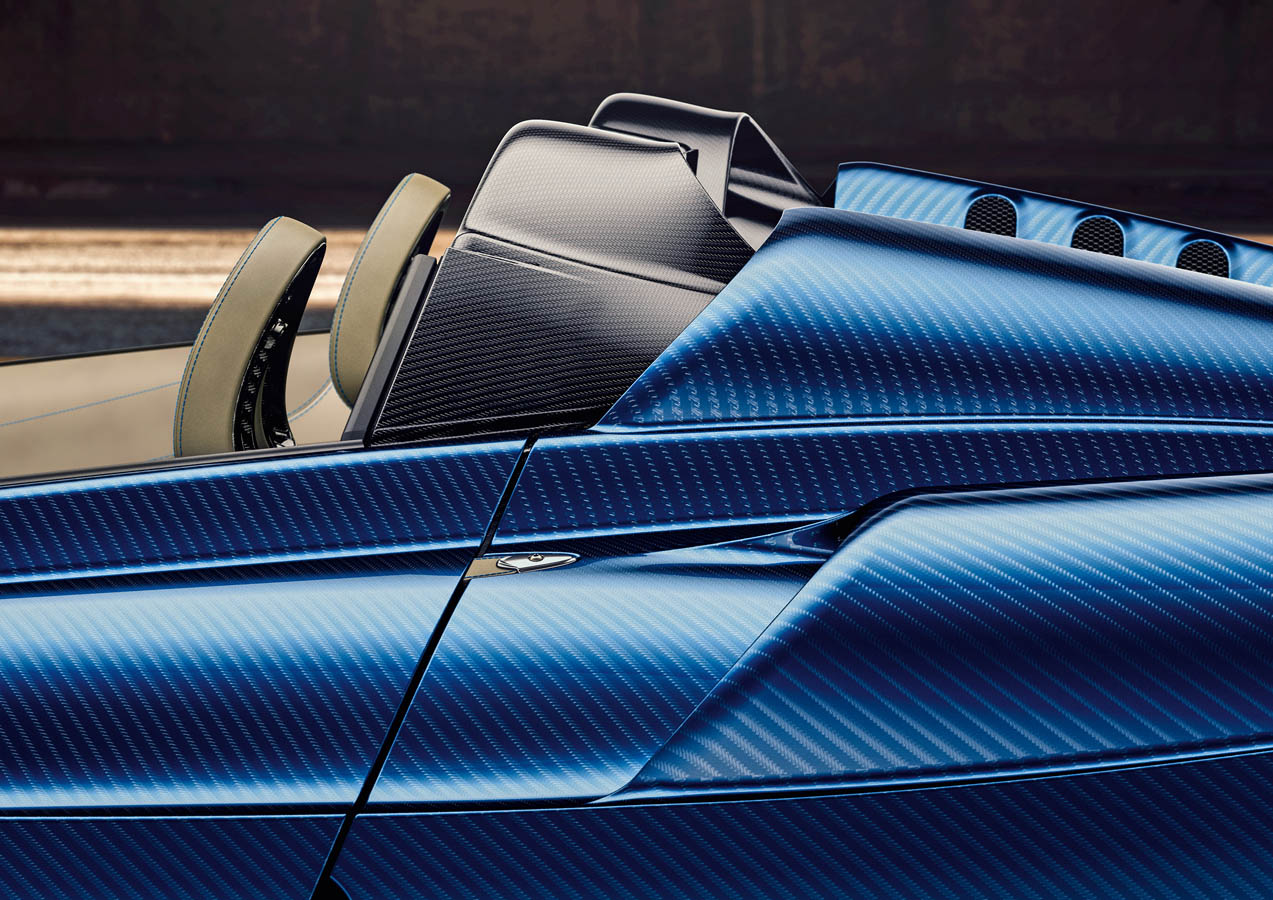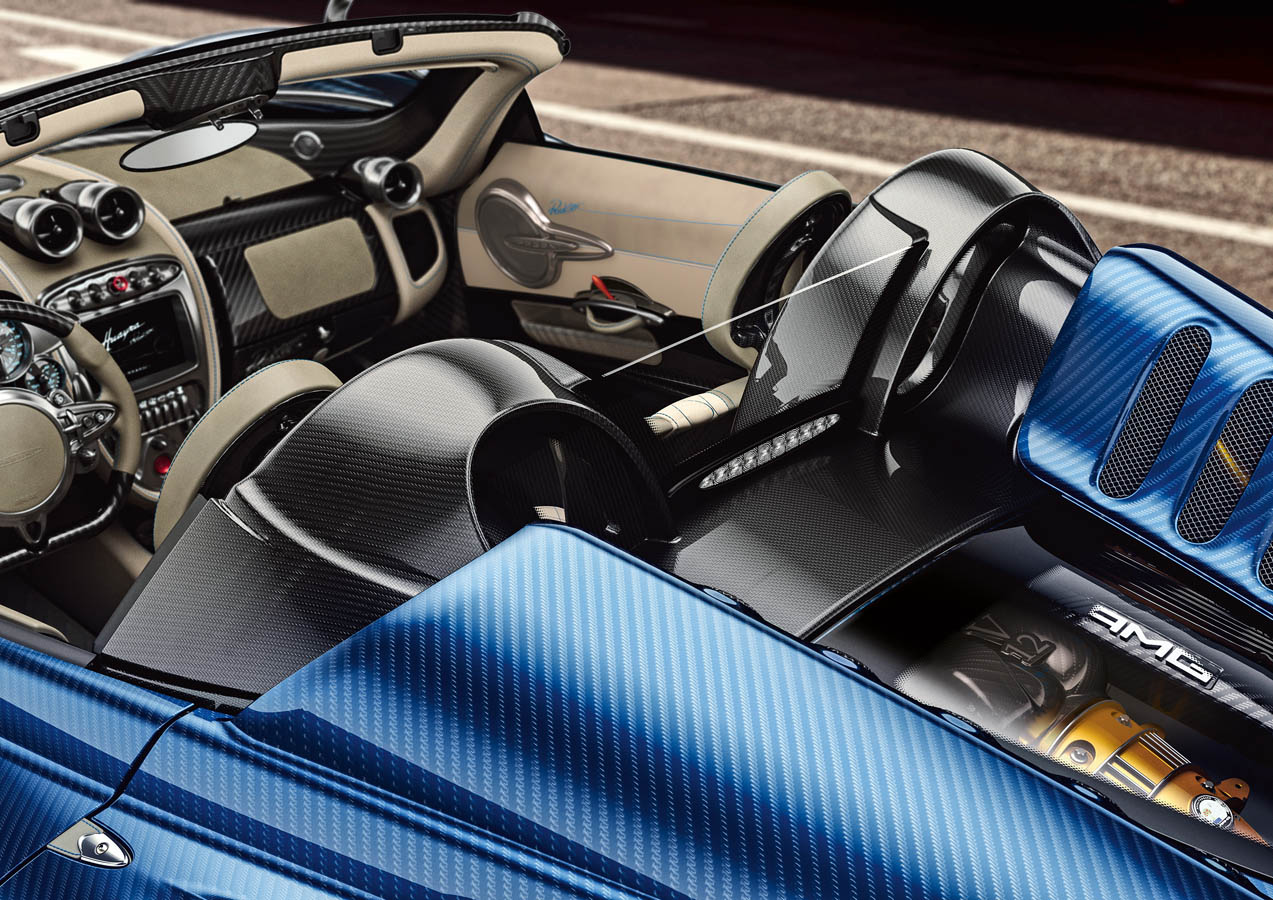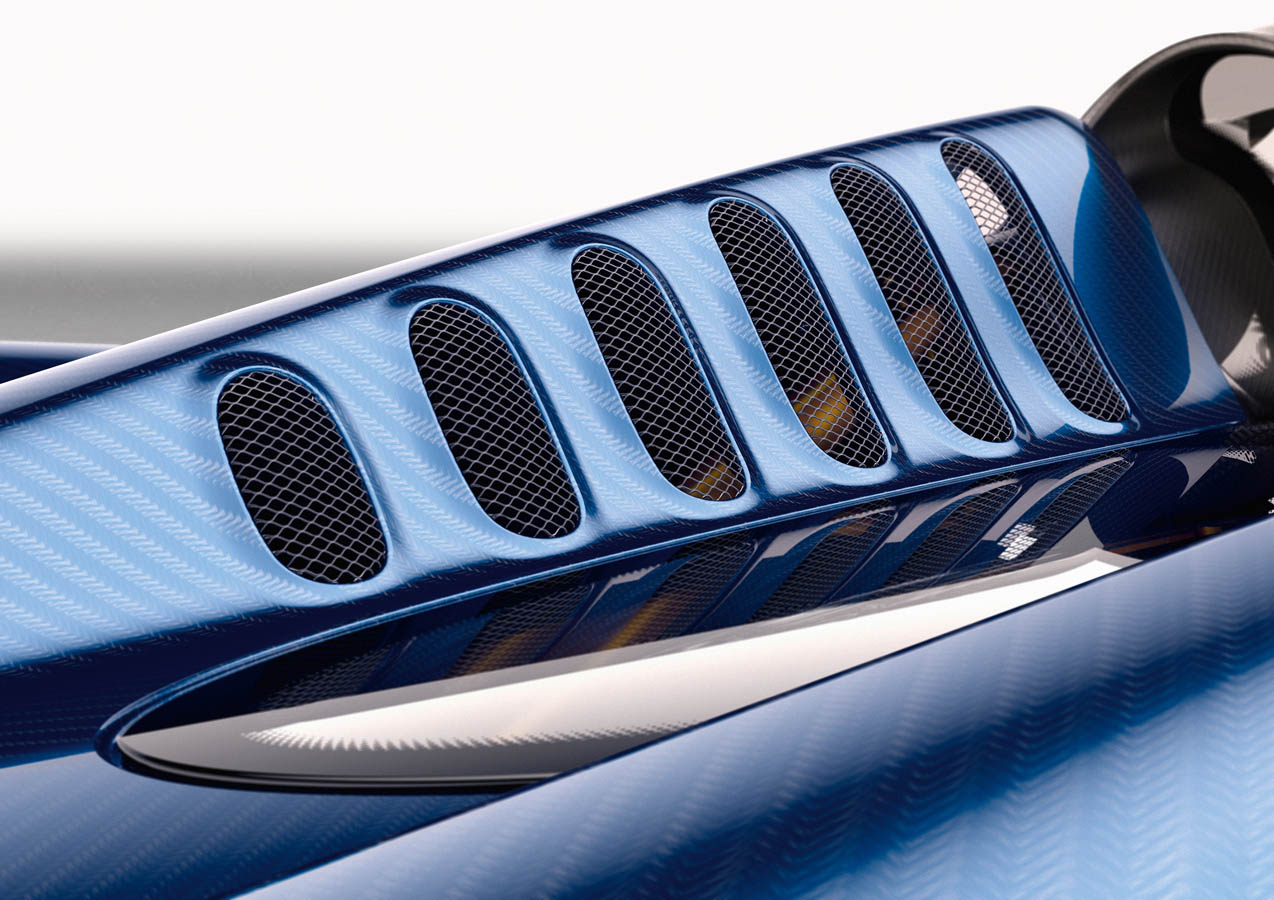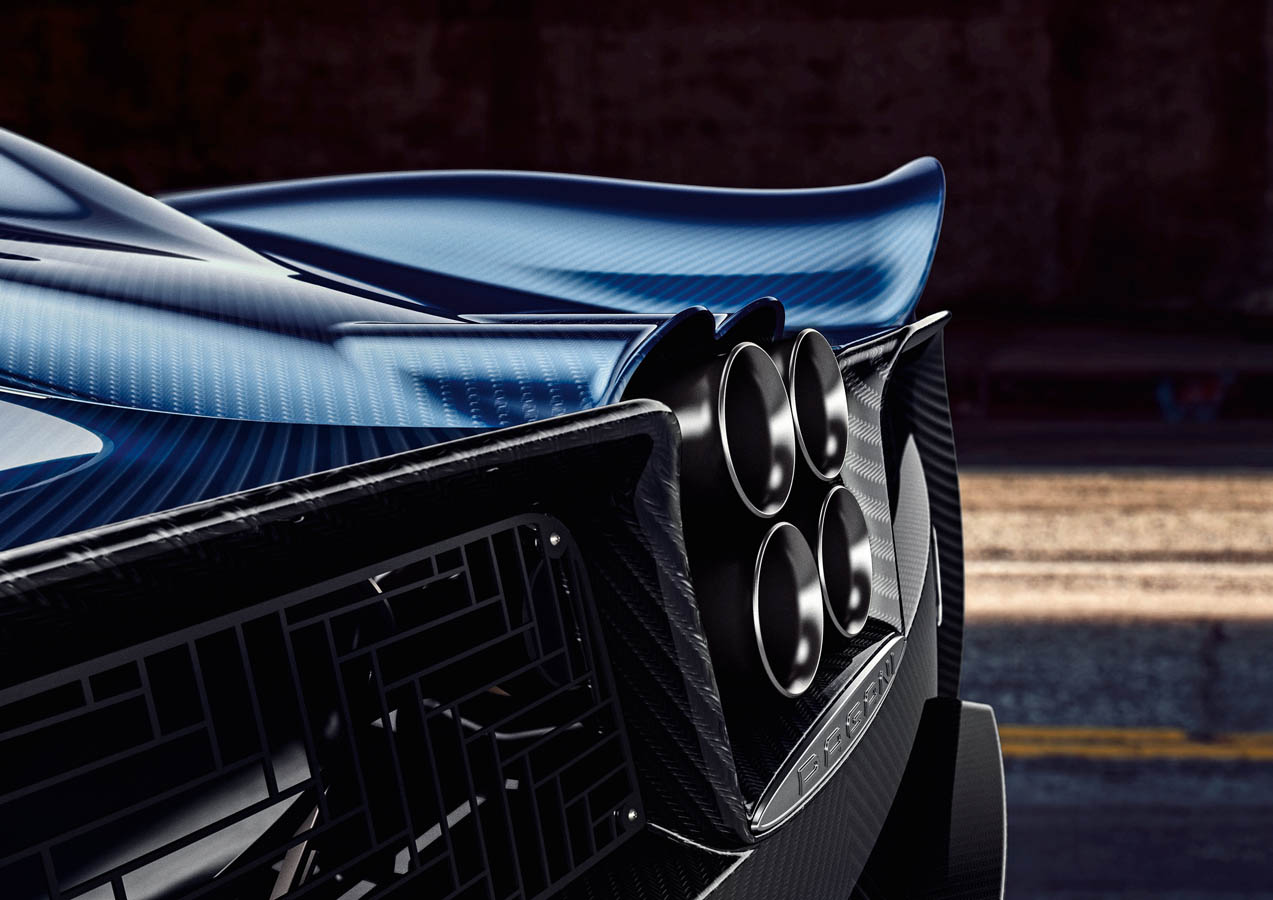
The objective is always to outdo oneself. Pure beauty in all shapes and surfaces – this is the philosophy behind Horacio Pagani’s latest creation. From this foundation is built a masterpiece with a perfect balance of attention to detail and technological advancement. The combination of Art and Science: a founding principle and cornerstone to the philosophy of Pagani Automobili. This creed comes from the genius of Leonardo da Vinci, who pursued perfection in form and function at every stage of the process, down to the most minute component of the design. All Pagani creations are born from this relentless chase of beauty and passion. The Pagani Huayra Roadster represents an unbridled artistic showcase, featuring the most dynamic technology; this is Horacio Pagani’s open-air tribute to the gods of wind.
First presented to the public in Geneva in 2011, the Pagani Huayra Coupe marked a new era of hypercars. The Huayra Coupe became the gold standard, raising the bar for lightweight build and innovative performance-based technology. This formidable combination earned the Huayra Coupe the most accolades in the automobile industry, second only to the Zonda.
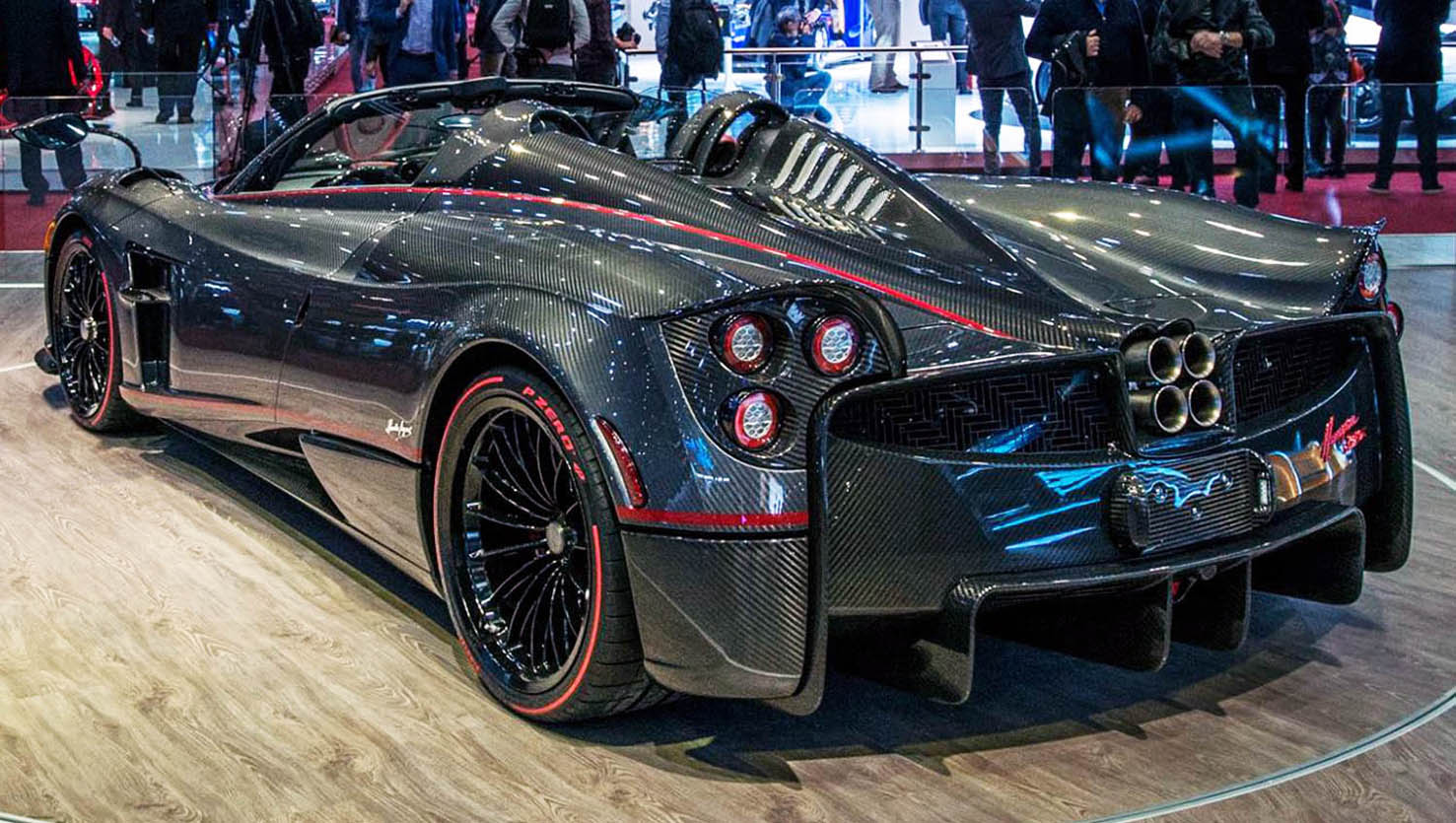
The Huayra BC was a natural evolution, raw power packaged into a 1,218 kg high-performance automobile, and, at 1.8 G, capable of the highest lateral acceleration ever seen on a car with road tires. Valuable experience and knowledge gained from relentless testing on the road and the most difficult circuits of the world, enabled Pagani Automobili to build a solid technical premise from which to base all Research and Development. This foundation and expertise was crucial in the development of the technical solutions applied to the Pagani Huayra Roadster.
The Pagani Huayra Roadster project began in 2010, with the ostensibly simple idea of a Huayra Coupe with a removable roof and conventional doors, as was developed for the Zonda Roadster in 2003. In 2013, the design was scrapped and everything restarted from the beginning of the design process. Each Pagani creation has a life of its own, every detail must have its own harmony in line with the spirit and soul of the machine car. The Pagani Huayra Roadster became a project independent of its predecessor, a machine car with its own soul.
From the very beginning, the Pagani Huayra Roadster door design followed in the tradition of the Mercedes-Benz models of the 1950’s, specifically the gullwing doors of the 300-SL, and its Roadster variant featuring conventional doors. In the end, the design closely follows in the tradition of Pagani – the vehicle best represented in the Huayra Roadster design: the Zonda Cinque Roadster.
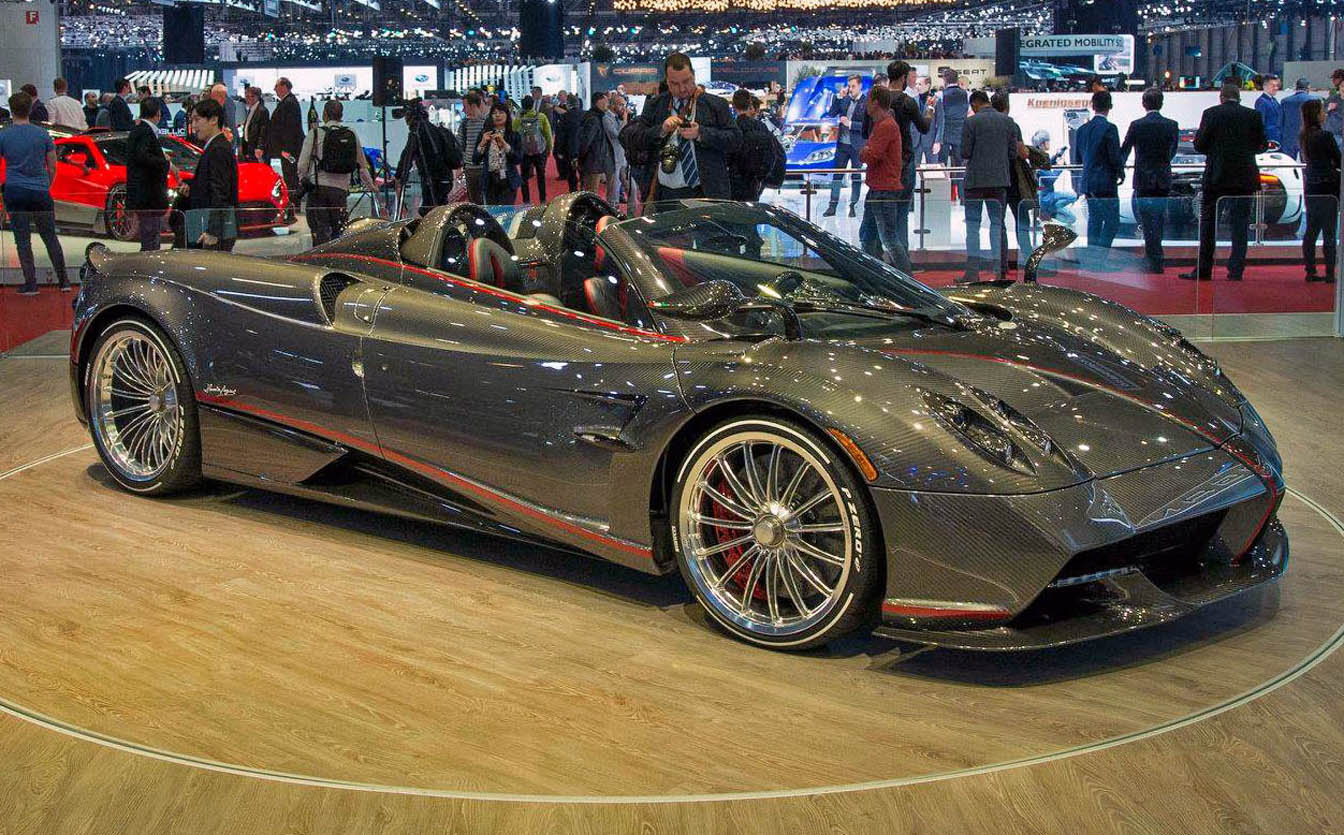
The overall shape is smooth and immediate, where each line has a beginning and a definite end. Every last detail has been revised- every contour made more defined, every curve redrawn multiple times to arrive together in a cohesive, liquid form.
From the more aggressive and pronounced mouth of the car, framed by wider wheel arches, from the shape of the roll bars to the upgraded interior- every single element of the car has been scrutinized and redesigned. Every detail considered and developed with its own unique design language, in direct symmetry with aerodynamic requirements.
The bonnet has a fundamental function: an elegant vitrine containing both the technology and the art of the engine. By natural evolution, its design took on a life of its own, becoming a space with its own stylistic identity, itself worthy of being exhibited in an art gallery.
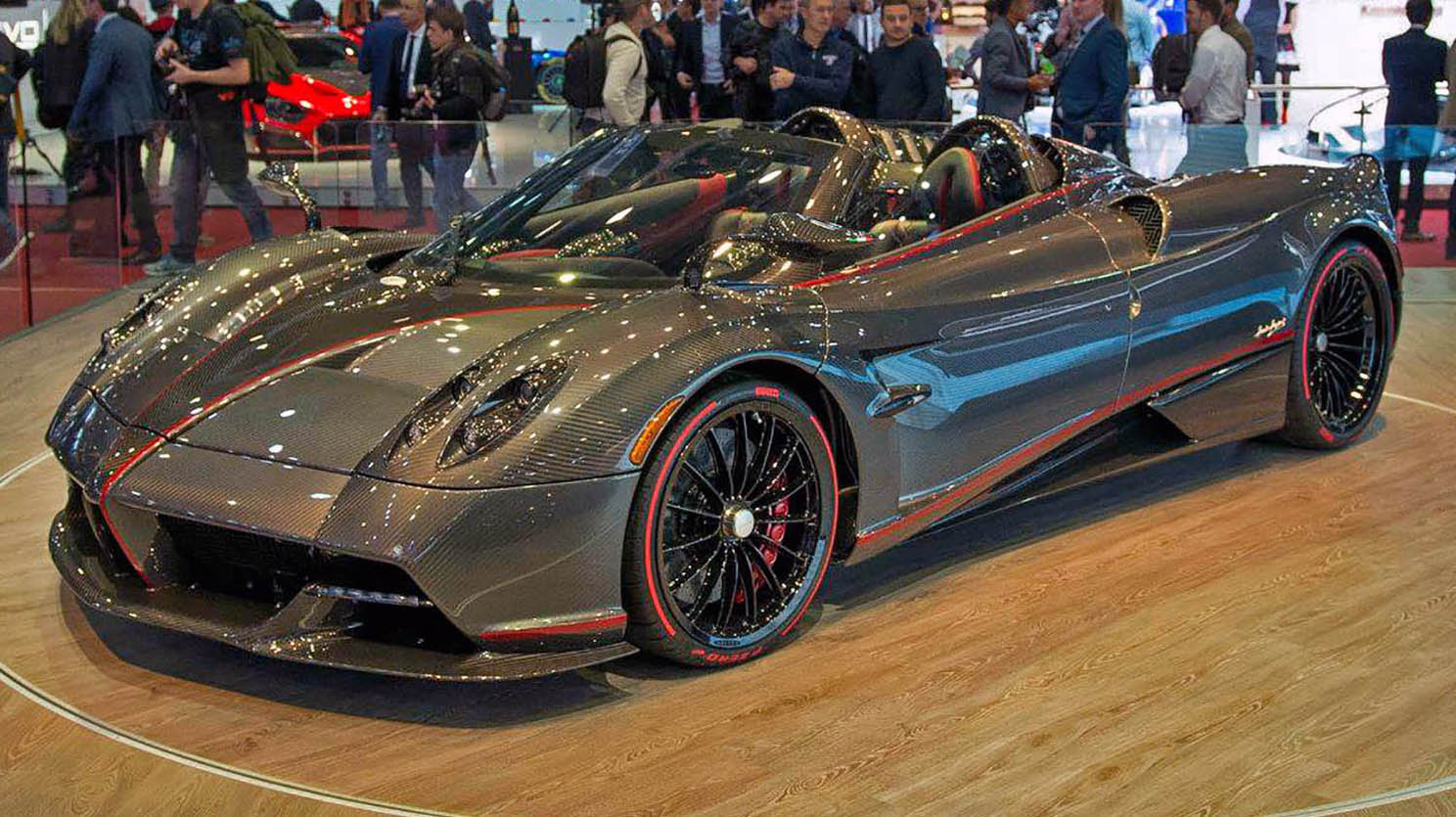
Unlike most modern supercars, the Pagani Huayra Roadster is almost fully exposed, with nearly every mechanical part visible, every last piece proud to be revealed. Staying true to the Pagani philosophy of respecting every last detail in the design, every piece of the car given consideration and attention. Even the smallest screw is designed to be both beautiful and functional.
THE CHASSIS AND THE MATERIALS
One of the ambitious goals set at the beginning of the project was to build a Roadster that would be lighter than the Coupe, improving the torsional rigidity of the frame. Armed with the expertise gained from the Zonda R, Huayra Coupe and the Huayra BC, the Pagani engineering team further refined the development of carbo-titanium. Combined with a new form of composite material and developed for the Pagani Huayra Roadster, it is considered more advanced than materials used for Formula 1 cars. This complex and highly ambitious undertaking has allowed for a 52% increase in stiffness, at the same weight, thanks to the combination of the Carbo-Titanium and the Carbo-Triax HP52. The dry weight of the Huayra Roadster measures 1,280kg, about 80kg less than the Huayra Coupe, while also increasing in torsional flexional rigidity – an incredible achievement by its own right, from a purely technical standpoint.
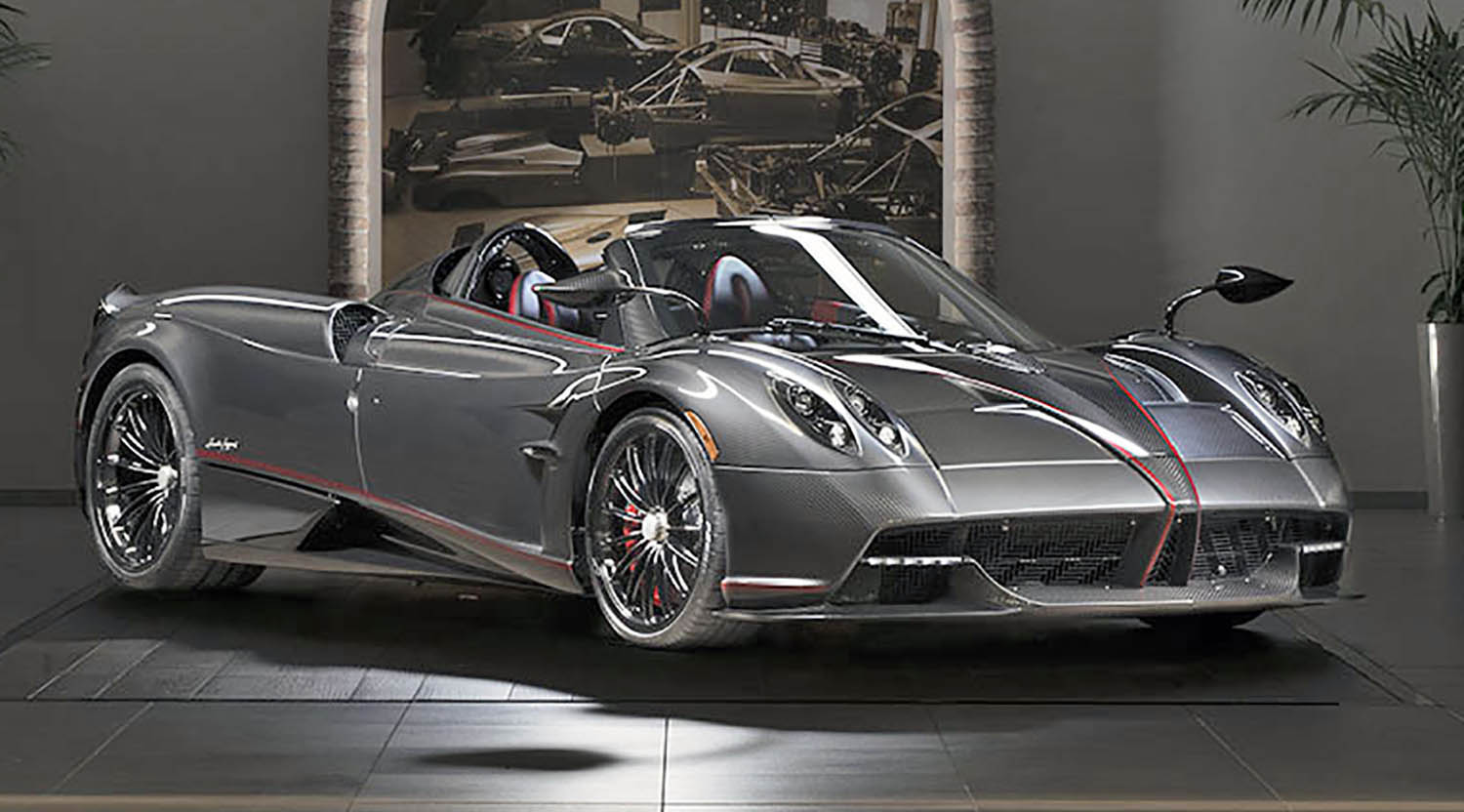
THE ENGINE
The Pagani Huayra Roadster is powered by the Mercedes-AMG M158 engine. The twelve-cylinder engine, built specifically for Pagani by Mercedes-AMG, has benefitted from the research and development done for the Huayra BC, delivering power of 764 HP at 6200 RPM, with a torque of over 1000 NM already available at 2400 RPM.
Equipped with the most cutting edge technology, the twin-turbo, 12 cylinder, narrow angled 60 degree engine with 5,980 cm3 has been developed to satisfy both the international homologation standards and the even more stringent Pagani internal standards, resulting in a driving experience both relaxed and electrifying. The turbines have been developed to provide an immediate throttle response without delay, providing the driver with full control of the vehicle. The dry sump lubrication allows for perfect engine response, even under the most extreme lateral acceleration conditions. The M158 motor is approved for the most restrictive EURO 6b and Carb environment regulations.
THE GEARBOX
The extraordinary power and torque of the Pagani Huayra Roadster is powered by a new gearbox seven-speed AMT successfully developed for the Huayra BC. Built by X-Track, it incorporates a hydraulic and electronic activation system and is combined with new carbon synchronizers, resulting in seamless and absolute precision when shifting, thanks also to the development of a new ECU together with Automac. The differential is electronic, with an advanced control system developed in conjunction with Bosch, ensuring adaptation to all possible driving conditions: from day to day drivability to track performance, always providing driver stability and exceptional vehicle safety.
The weight of entire unit, including the electronic differential, is approximately 40% less than the standard dual-clutch gearbox. The gearbox itself is mounted in a transverse position, significantly reducing the polar inertia of the entire vehicle and moving optimally at the center of gravity of the car. This results in a safe understeering response of the Pagani Huayra Roadster, ensuring comfort and safety for road driving and predictable behavior and control on the track.
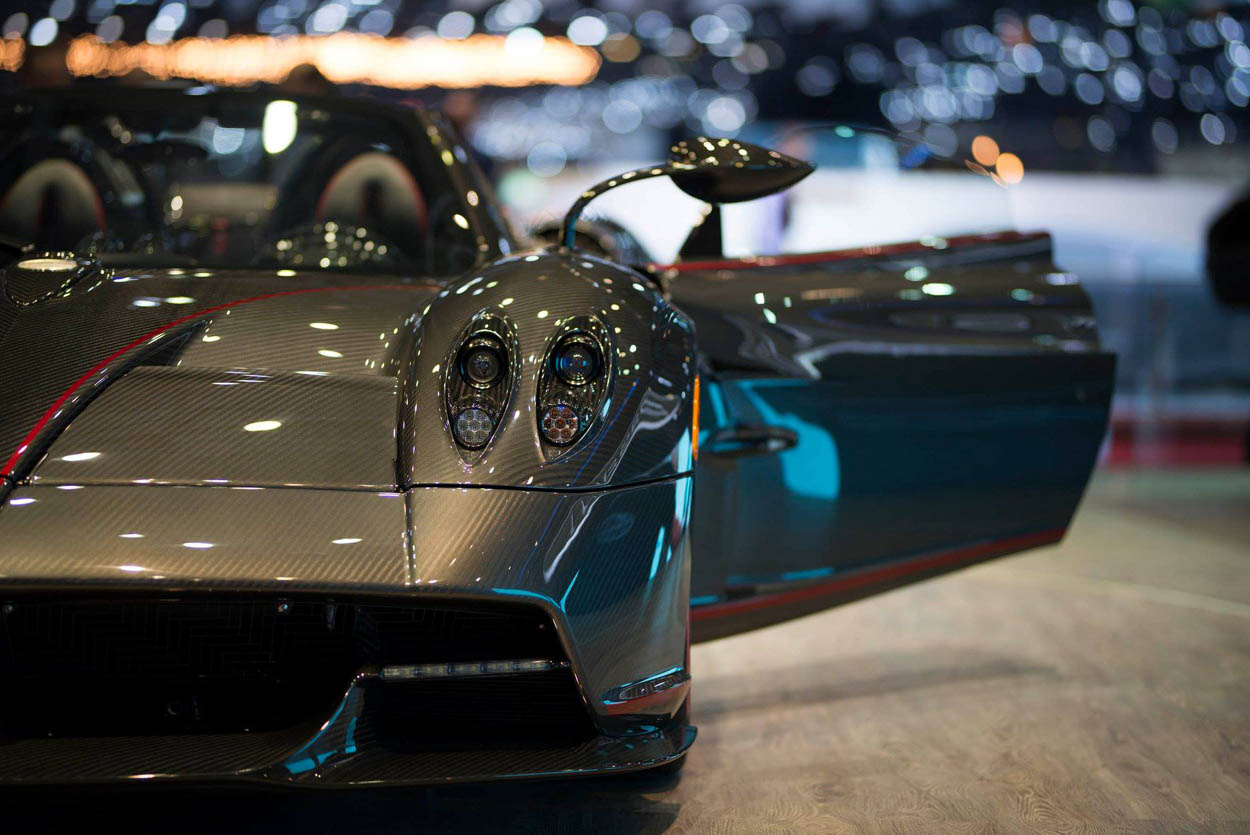
THE SUSPENSION
The refinement of the suspension of Pagani Automobili creations has always been a point of pride and a key component in the design of the cars signed by Horacio Pagani. In the same way the development of the technology behind the Zonda R flowed naturally into the development of the technology of the Huayra Coupe, the Huayra BC development was the staging ground for the Pagani Huayra Roadster. Every concept learned from the previous model is applied and further developed for the new model. All of the suspension assembly is a work of art and a concentration of the latest technology, made in a lightweight aluminum alloy, called HiForg, designed specifically for the Huayra Roadster. This lightened the car by 25%, compared to the Huayra coupe, an extraordinary result for a car already considered the paragon in optimizing power-weight ratio.
This sophisticated and technological marvel enables in the Pagani Huayra Roadster perfect behavior under any driving situation.
THE BRAKES
A long time partner of Pagani, Brembo has always delivered outstanding performance to Pagani cars. Since the Zonda F in 2006, Pagani cars have some of the shortest recorded stopping distances for 100-0 and 200-0. Certainly, the lightweight form of the car helps, but the results are a testament to the power and efficacy of the braking system. For the Pagani Huayra Roadster, Brembo has developed a new carbon ceramic (CCM) implant with 380×34 mm and a 6-piston caliper in the front and 380×34 mm, 4-piston caliper at the rear.
The design of the caliper has been developed by Pagani and Brembo to decrease as much as possible the weight of the unsprung mass, resulting in a perfect balance of beauty and technological advancement. The most advanced brake caliper Brembo has ever created.
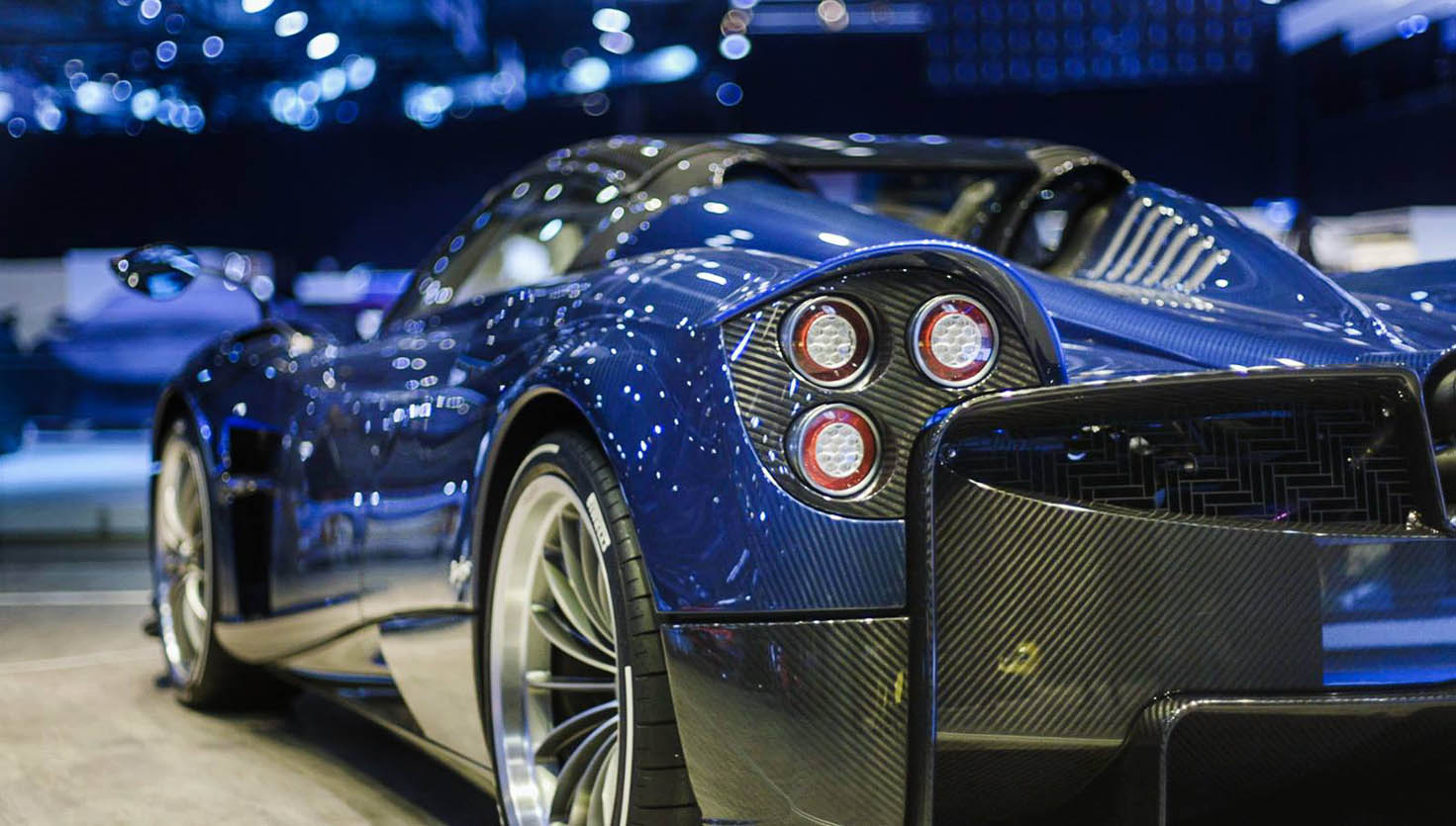
THE TIRES
“Power is nothing without control.” This is the famous mantra that drove the Pirelli engineers to sculpt and design a specific rubber for the Pagani Huayra Roadster tires, allowing the vehicle to achieve an incredible performance of 1.8 g of lateral force. Performance was not the only factor in consideration for the development of the new tire; the Pirelli PZero Corsa for the Huayra Roadster was also designed to have a lower rolling resistance, reducing fuel consumption and CO2 emissions into the atmosphere.
Developed and built inside Pirelli “MIRS” Modular Integrated Robotized System, the department for the manufacturing of high performance tires, the new Pirelli PZero Corsa measures 21 inches in the rear and 20 inches in the front. Developed along with Horacio Pagani, the tire displays for the first time the “HP” logo on the shoulder.
ESP
Continuing intensive development over the past five years, Pagani Automobili and Bosch have developed a new ESP system for the Pagani Huayra Roadster – an electronic stability control system enhancing the dynamic capabilities of the Huayra Roadster without ever being invasive, without ever giving the impression that any power other than the pilot himself has control of the vehicle. The system is a natural extension of the dynamic abilities of the car.
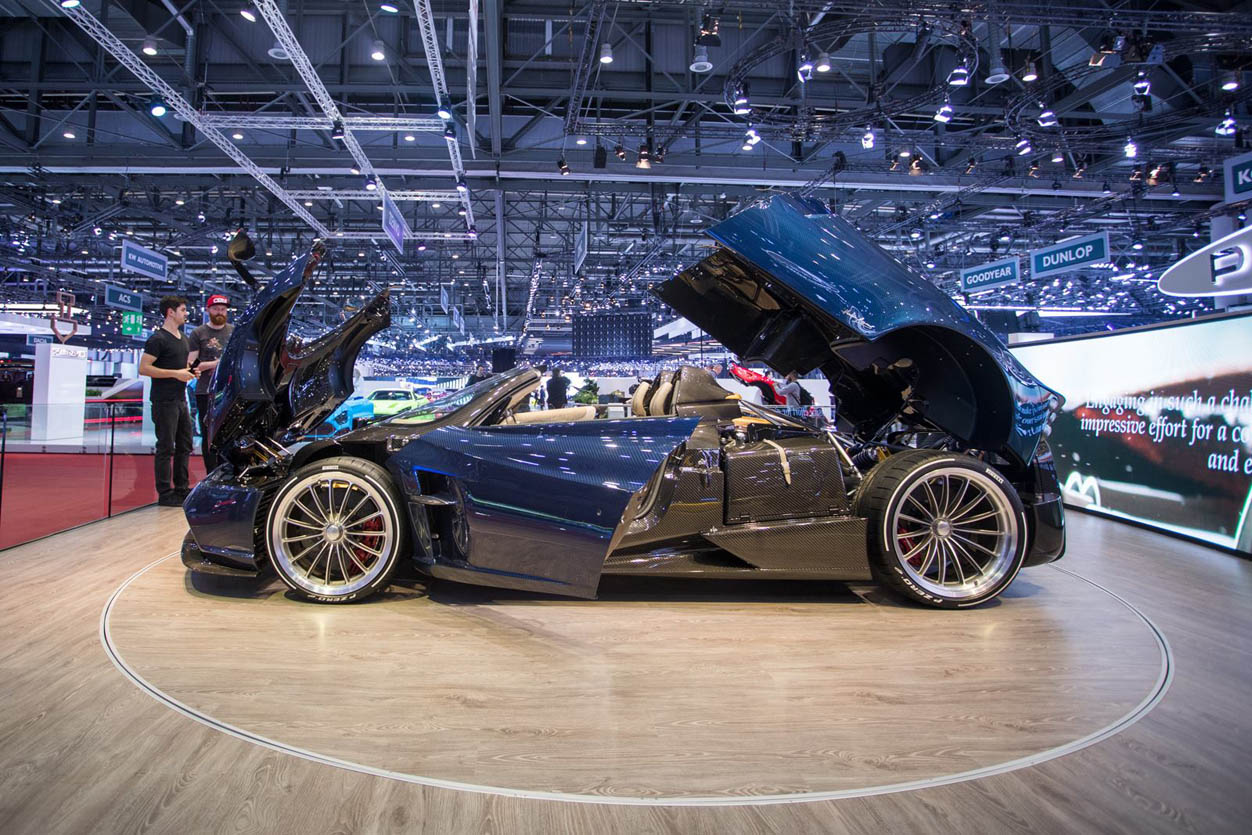
It has always been a baseline requirement from the earliest design phases that the car must be mechanically sound with safe understeering, before starting the development of electronic control systems.
The development started on the Huayra BC and was refined for the characteristics of the Pagani Huayra Roadster, leading to the identification of five distinct driving modes: Wet, Comfort, Sport, Race and ESC Off. Each with its own soul, fully maximizing the potential of the latest creation from the atelier of San Cesario sul Panaro.
THE AERODYNAMICS
Huayra, the god of wind. With the Huayra Coupe Pagani Automobili was the first automaker to develop a fully computerised Active Aerodynamic system on a production car. The concept has been further developed on the Huayra BC and brought to excellence on the Pagani Huayra Roadster.
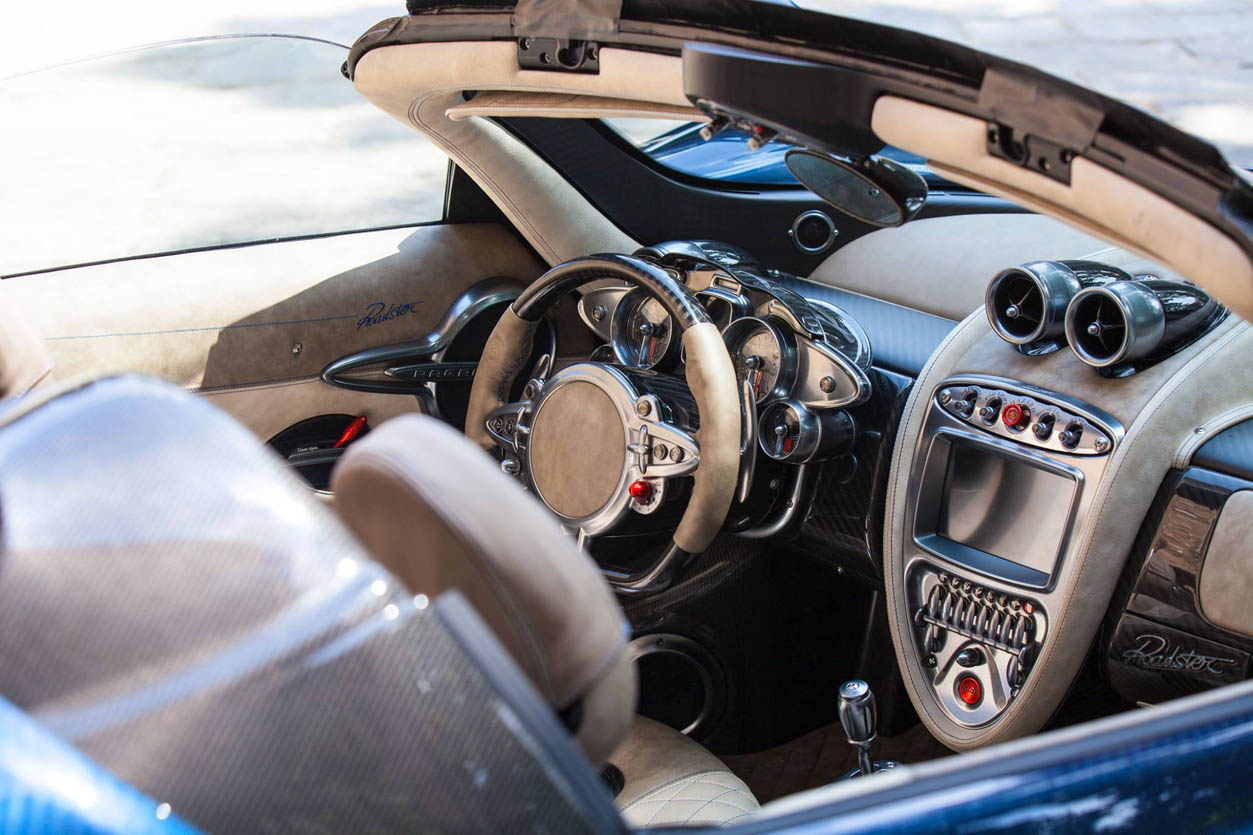
Four flaps, two in the front and two in the rear, together with the front active suspension, work independently to ensure continuous optimum safety and a considerable performance in all conditions. The active aerodynamic system works to keep the bottom of the vehicle always parallel to the road, increasing the efficiency of the air flows above and below the car, ensuring an optimal downforce on both road and track.
Beauty as a marriage of form and function: the central front section, the front extractors and a flat bottom. Always well-defined lines. A great work of study, simulation and testing on 1:1 scale models in the wind tunnel, has been done to minimize turbulence and air flows which generally occur in an open-top car at the rear roll bar and front window level. The work carried out to ensure the Pagani Huayra Roadster with efficient downforce under all conditions, has proved very important and took a long time and concentration. But it went hand in hand with the concept of style, creating a sinuous but defined shape, which reveals the dynamic and performance qualities of Huayra Roadster.
THE ROOF
Pagani Huayra Roadster will be fitted with two types of roof. The first consists in a very light carbon hard top with a central glass element, very simple and quick to install. In this configuration it assumes the look of a coupe, with a glass roof that provides the passenger a unique brightness, protecting them from UV rays and also giving a sense of freedom typical of a Roadster even with the installed hard roof.
The second type of roof is a fabric and carbon cover that can be easily installed manually and can be stored inside of Huayra Roadster. The Soft Roof can be installed in a few simple steps and in case of emergency.
